Georgia Part 6: Cycling adventure in the Vashlovani National Park
Untouched steppe landscapes in the southeastern corner of Georgia (31)
Saying goodbye to Tusheti was hard and we had to rest our legs a bit in the town of Telavi before we were ready for the last destination of our journey through eastern Georgia. This time we are going to a barren desert landscape at the border to Azerbaijan. Our destination is the remote Vashlovani National Park in the far southeast of the country. Locals rave about the unique and diverse scenery in this destination for off-road enthusiasts, and we are curious to see this semi-desert ecosystem, which is a complete contrast to the mountains of the Caucasus. But there is actually a connection between these two different regions, as the shepherds from Tusheti move during winter to the lowlands of the Vashlovani National Park with their herds. The seemingly sparse vegetation of the protected area is surprisingly diverse. Besides 600 species of plants described in the park, there are also 34 animal species registered, that are on the Red List of Threatened Species. The park is famous for the goitered gazelle, the queen of the steppe. But bears, lynxes, jackals, wild boars and porcupines also feel at home here, as well as numerous bird species. There was even a Caucasian leopard, thought to be extinct, caught on a camera in 2003.
We start our research on the internet and realize quickly: A trip to this area means a real adventure and there’s a lot of planning to be done before. We find no information from other cyclists who have been there and the transport of choice seems to be a 4WD and not a bike. The roads are said to be in a very poor condition and barely passable after rain and in addition you need a special permit and you also have to carry food and water to the park, as there’s no infrastructure. And if that’s not enough, the nature reserve is huge with 442,5 km² and home to the most poisonous snakes in the country. Against all odds, our curiosity wins and we want to travel to this remote place, but this time with Nicole & Beni, as such an adventure seems safer together.
Preparations for our adventure in Dedoplistskaro
The gateway of the national park is the town of Dedoplistskaro (population about 6’000), which we simply continue to call Dedo, as none of us manages to pronounce the name correctly. On our way to Dedo, we meet Nicole & Beni by chance and cycle together to our accommodation. Since it’s quite cumbersome to get all the permits for the park, we decided to stay two nights in town first and booked rooms at the recommendable Teo's Cottages. We spend the night in wooden bungalows, relax in a hammock under a tree and let ourselves be spoiled with homemade Georgian dishes. We feel like staying here longer, but the adventure calls. The kind owner David helps us with all the paperwork and drives us to the police station and the visitor center and organizes the necessary permits for us. We have to decide how many days we intend to spend in the park and which route we want to take. There is map of the national park with all the different routes, but it’s only available in ქართული and it always takes us a few minutes to decipher the ornamental letters. It's a good thing we also have our app Komoot to plan our route and download an offline map which proves to be quite useful for the park.
We decide on a round trip through the park, where we get to see the scenic highlights and plan only short distances due to the poor road conditions, so that we can spend the night at the designated camp spots or near ranger stations, where the chance of a water source is bigger. This route would take us four to five days and we buy food accordingly. Not so easy to stock up on food for that many days, especially when the selection in the stores is very limited. Fortunately, there is a small fruit and vegetable market, so that we can buy something healthy in addition to all the snacks.
We spend the rest of the day exploring the surroundings of the accommodation. Nearby, the Eagle Creek has carved itself into the limestone and the area is surprisingly green. There’s a walking trail along the limestone cliffs, but we decide to take a walk at the bottom of the gorge along the creek. It’s pleasantly cool down here and we pass various waterfalls. A pleasant start into the adventure ahead, although it’s hard to imagine that we’ll find ourselves in a desert-like landscape tomorrow. We enjoy a last bottle of wine and a nice dinner together and are full of anticipation for the next days.
On the way to the Bear Canyon and a spectacular viewpoint
It must look quite amusing how we fill up all our water bottles and even our 10 l water bags at the communal well in Dedo. We explain the locals that we plan on venturing into the park with our heavy loaded bicycles and that we need to fill up water for the next days. They look rather astonished. But we feel pretty sure about our plan as we have an emergency back-up and can contact a ranger through David, should we get into an emergency situation or should we need more water. The only thing that worries us is the weather forecast, as it’s supposed to rain in the coming days and we know that the road conditions can deteriorate quickly and become impassable. But right now, we are too excited for the adventure ahead and are even happy when we leave the tarmac road after the first 40 km and turn onto the dirt track that leads into the park.
The Vashlovani National Park is located 48 km from Dedo and on the way there is only the small village of Kasristskali with a tiny supermarket and a well. Already getting to the entrance of the national park is quite tiring. We cross farmland and brownish hills and then the scenery gets more interesting as we descend to the Bear Canyon. We drive through a narrow wadi-like canyon with amazing rock formations on either side and pitch our tent at the picnic area at the Bear Canyon.
The next morning, we cycle through the canyon on a dry river bed full of loose rocks. Shortly after, the landscape changes completely and the wide steppe landscape of the Eldari Lowlands opens up in front of us. Are we really still in Georgia? The dry vegetation, the rocks and the abandoned farms make us think of the badlands in the USA or the savanna in Tanzania (even though we have never been there). Never would we have expected such a landscape in Georgia. It’s an incredible feeling to be cycling on a road like these, especially when we see gazelles in the distance. We don't meet a single person on this route. Tusheti felt almost crowded in comparison. We have our picnic in the middle of the road in this unique scenery.
Azerbaijan is just a few kilometers away, a country we’re currently not allowed to enter. But it would really only be a stone's throw to the first village. We wonder if anyone would notice if we took a quick detour. Probably so, because shortly afterwards we have to show our permit to the grumpy border police. As always, there are a few aggressive dogs at the border guard station, which are not hold back by the guards.
We quickly continue on bumpy roads to the Usakhelo Viewpoint, an absolute highlight. We’re looking at the impressive rocks in the evening light. It’s a dreamlike scenery and we sit down and enjoy the moment.
A narrow track descends steeply through a gorge to the riverbank of the Alazani to Mijniskure, just opposite Azerbaijan. The sparse vegetation suddenly gives way to another world, an idyllic riverbank awaits us. There are picnic areas and toilets and there’s even a water source. This is our chance and we fill up our water bag and enjoy a shower after this exhausting day. What a wonderful feeling. It turns out to be a peaceful evening at the riverside with nice conversations.
Even though our campsite at the river is quite inviting, we have to get going the next morning, as it’s supposed to start raining soon. We need to get back up the 200 meters of altitude to the “main road” as soon as possible, before the road will get slippery and muddy. Today we only want to cycle 12 km to the next ranger station and sit out the rain there. Of course, this will take us several hours as you can forget to get anywhere quickly considering the roads in the park. We reach the ranger station in time, put up our tent, cook some pasta and then it starts raining. We snuggle up in our tents and practice the art of doing nothing while a few kittens keep us company. And even though we already feel like real adventurers, the real challenge is still waiting for us.
The hardest day: A lot of frustration, a broken belt drive and a closed store
The fourth day in Vashlovani National Park would be our hardest day. It was raining during the night and the tracks of the park were slippery, muddy and hardly passable. We are on the official road, but this dirt track leads along a creek bed and can’t be really called a road. And although we take extra time for breakfast today, hoping that the track will dry up a bit, we quickly realize that we still started too early. Within two hours we make only two kilometers of progress. Our tires are constantly coated in sticky mud and we have to regularly remove it from the mudguard. It’s a frustrating situation and we lose a lot of time cleaning our bicycles. The dirt from the sprocket caused the belt to jump off from Nicole’s and Beni’s bicycles. We decide to make an early lunch break today in the hope that the track gets drier with the sun.
The plan works and it’s a little easier to drive after lunch, but only a little. We still only make very slow progress and then Beni's belt drive tears apart after it has already twisted before. Fortunately, we are equipped for such cases and we both have a spare belt with us and so we can continue after 20 minutes. Otherwise we would have been quite lost, as we pass no other car the whole day and there’s hardly any phone reception in the park. Luckily, everything went well.
Once again, we are grateful that we are making this trip together and can thus support and help each other not only morally but also physically. This trip shows us once again what a constant emotional up and down such a long-distance bike trip is and how everyone deals differently with frustrating situations. It's not easy to show such emotions, especially when you’re on the road with people you just recently met. But exactly those shared experiences can bring a special depth and closeness to a new friendship.
The good part about this hard day are the views as we cycle back towards the park entrance. We ride along a ridge looking on one side over the savanna landscape with snowcovered mountains in the background and on the other side towards the largest reservoir of Azerbaijan. Unfortunately, time is a bit short, because we want to reach the supermarket at the village of Kasristskali before sunset. We’ve been daydreaming a while now about beer and chocolate from the store after the past exhausting days. We drag ourselves over the last hills and arrive in the village only to find us in front of closed doors. The supermarket happens to be closed for two full days. We ask some of the locals where we could buy something, but no chance, no one offers to help us. Somehow this fits perfectly to this tedious day. We are slowly running out of our supplies and are glad, that we can at least fill up our water bottles in the village.
We spent the last night on a pasture near the road and have to restrain ourselves from eating all our food, as we need to save one last meal for our ride tomorrow. It’s an unusual situation for us being so far away from civilization and having to plan our supplies so carefully. We are relieved, as we have taken exactly the right amount of food for these five days and it’s just enough until we are back in Dedo, even if we often would have preferred a little more variety. We realize once again how spoiled we are with all the choices offered in our everyday life. A trip likes this makes us humble and grateful and we hope to be able to integrate this appreciation for the little things in life when we return one day.
Back to civilization
The last kilometers back to Dedo go by in a flash as we can’t wait to return to the comforts of civilization. Our first stop is a bakery where we feast on the delicious cakes and then it's back to Teo's Cottages for one last evening together. We enjoy some well-deserved wine and a delicious dinner. The next day we head back to Tbilisi and Nicole & Beni stay one more day in Dedo. They decided to fly back from Tbilisi and spend the winter in Switzerland and continue their bike trip next summer when more borders will be open. We are looking forward to our reunion in Switzerland and already make plans for a fondue together and looking back on the adventurous days we’ve spent at the Vashlovani National Park. We are glad to have traveled to this remote park together, even though it was very exhausting for all of us. We can highly recommend a trip to this unique landscape by jeep. And by bike? Well, you really have to want this.
And what are we doing now? We cycle back to Tbilisi and hear on our way back that Iran is finally opening its borders to tourists again. We can already see ourselves cycling through the desert, bargaining in the bazaars and marveling at the magnificent Islamic architecture in Isfahan. Should we visit Iran next and follow the pomegranate trail?
We drive back to the capital and take our time to plan our onward journey and also to process the many experiences during our trip through eastern Georgia. The past month couldn’t have been more varied, first we learned about Chechen culture in the Pankisi Valley, then we explored the mysterious Tusheti and finally we saw gazelles in the spectacular Vashlovani National Park. Georgia surprised us once again with its diversity and now we are looking forward to spend the fall in Tbilisi and introduce you to this charming city in our next post.

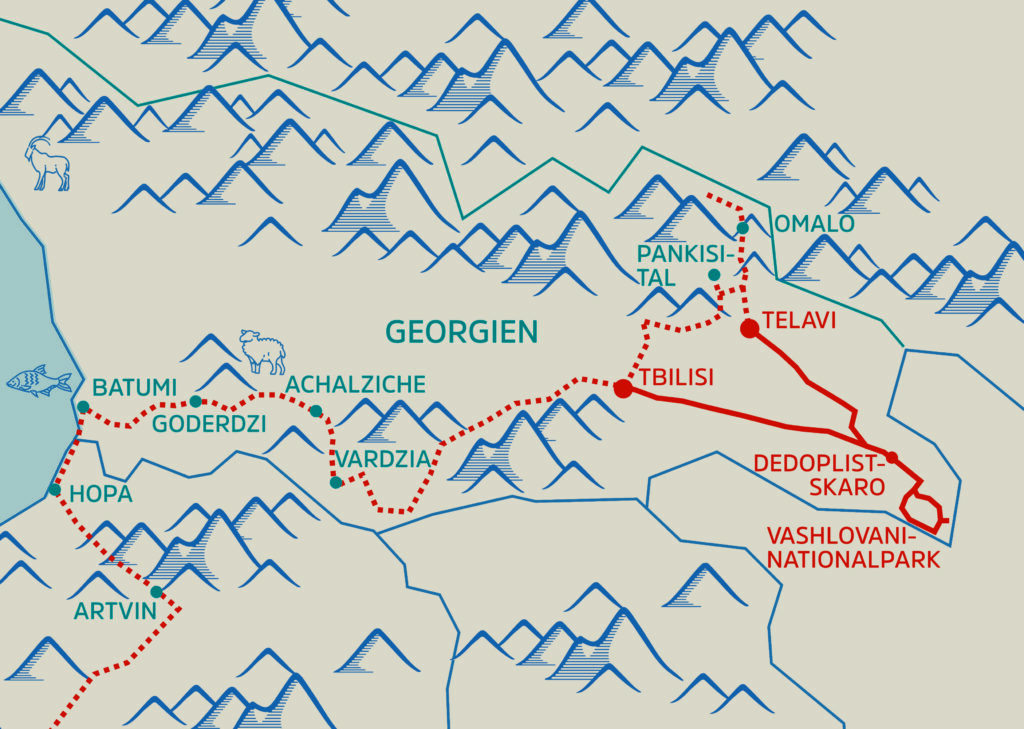
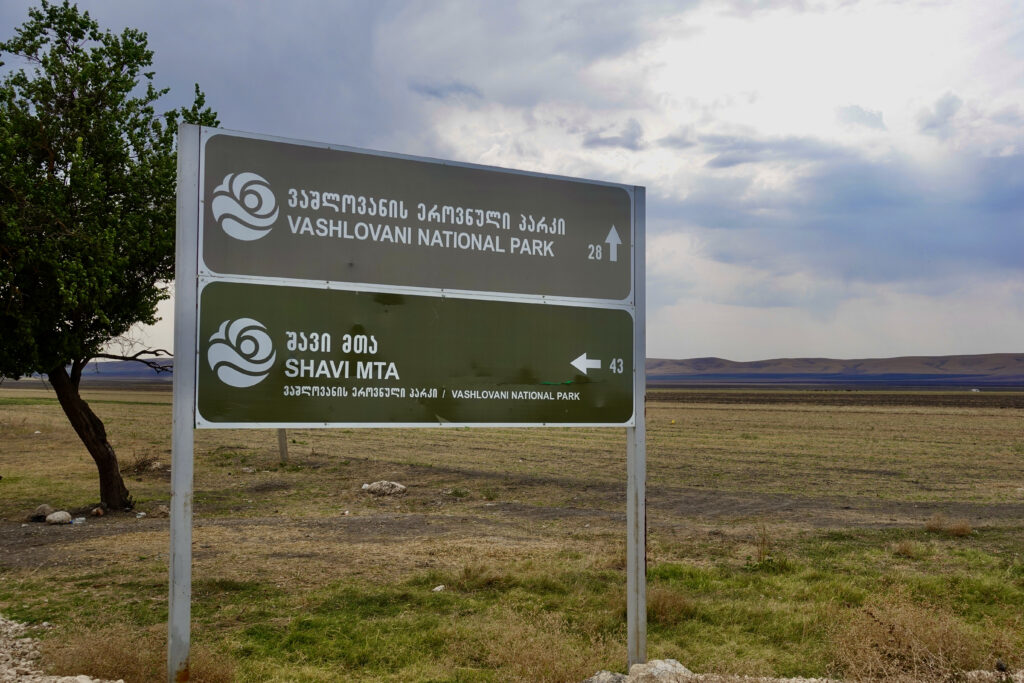
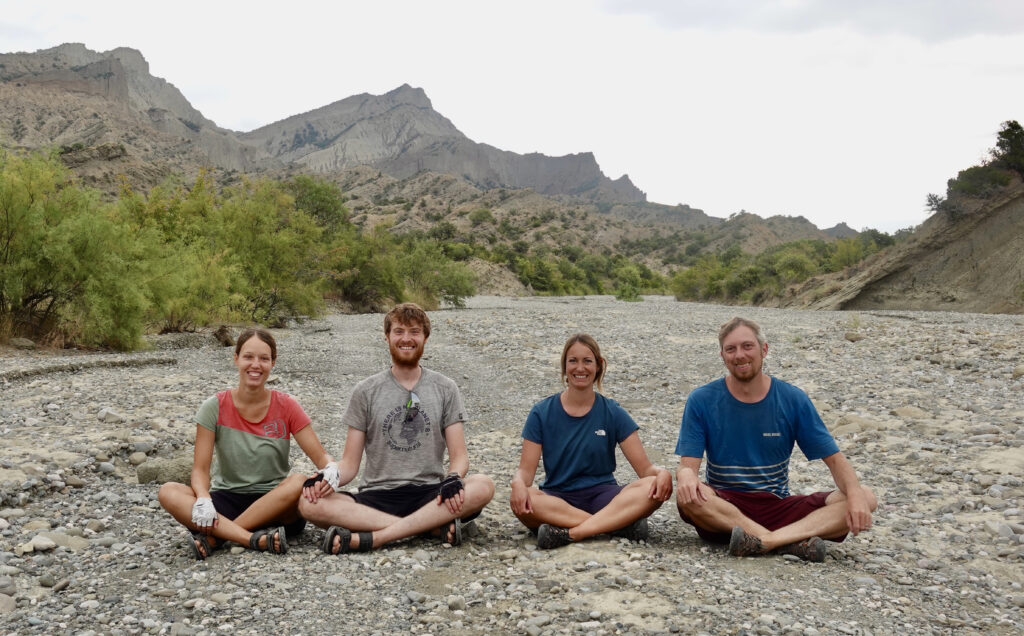
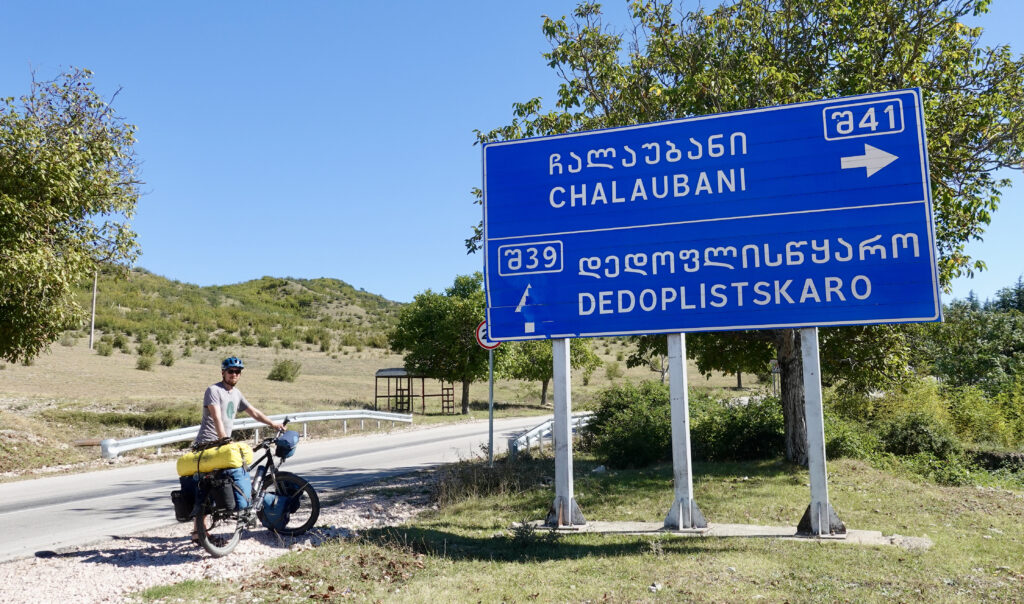
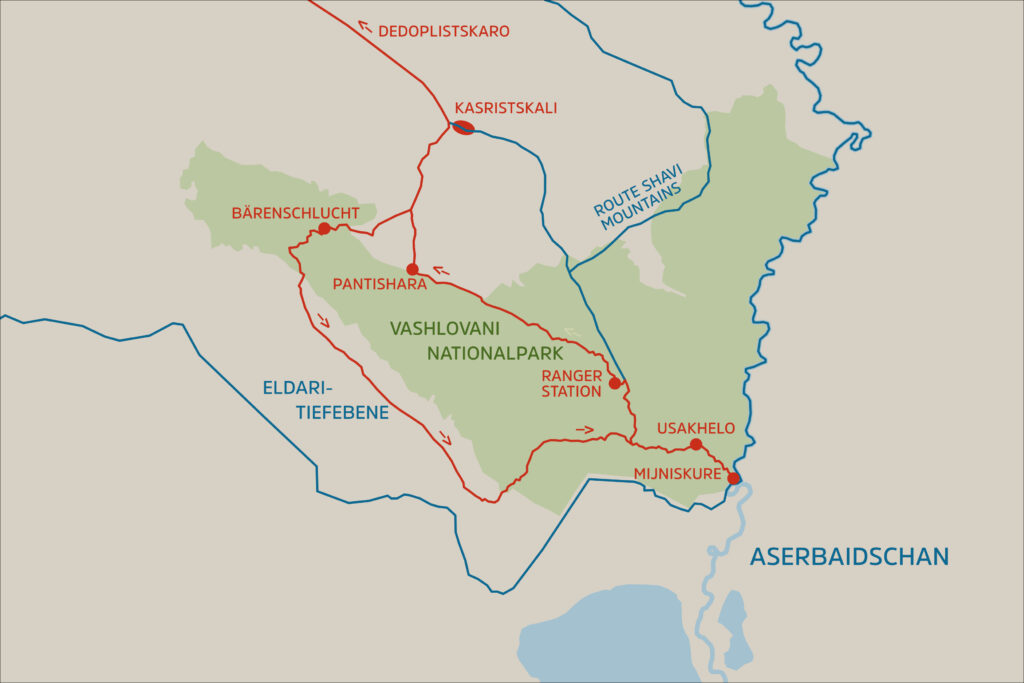
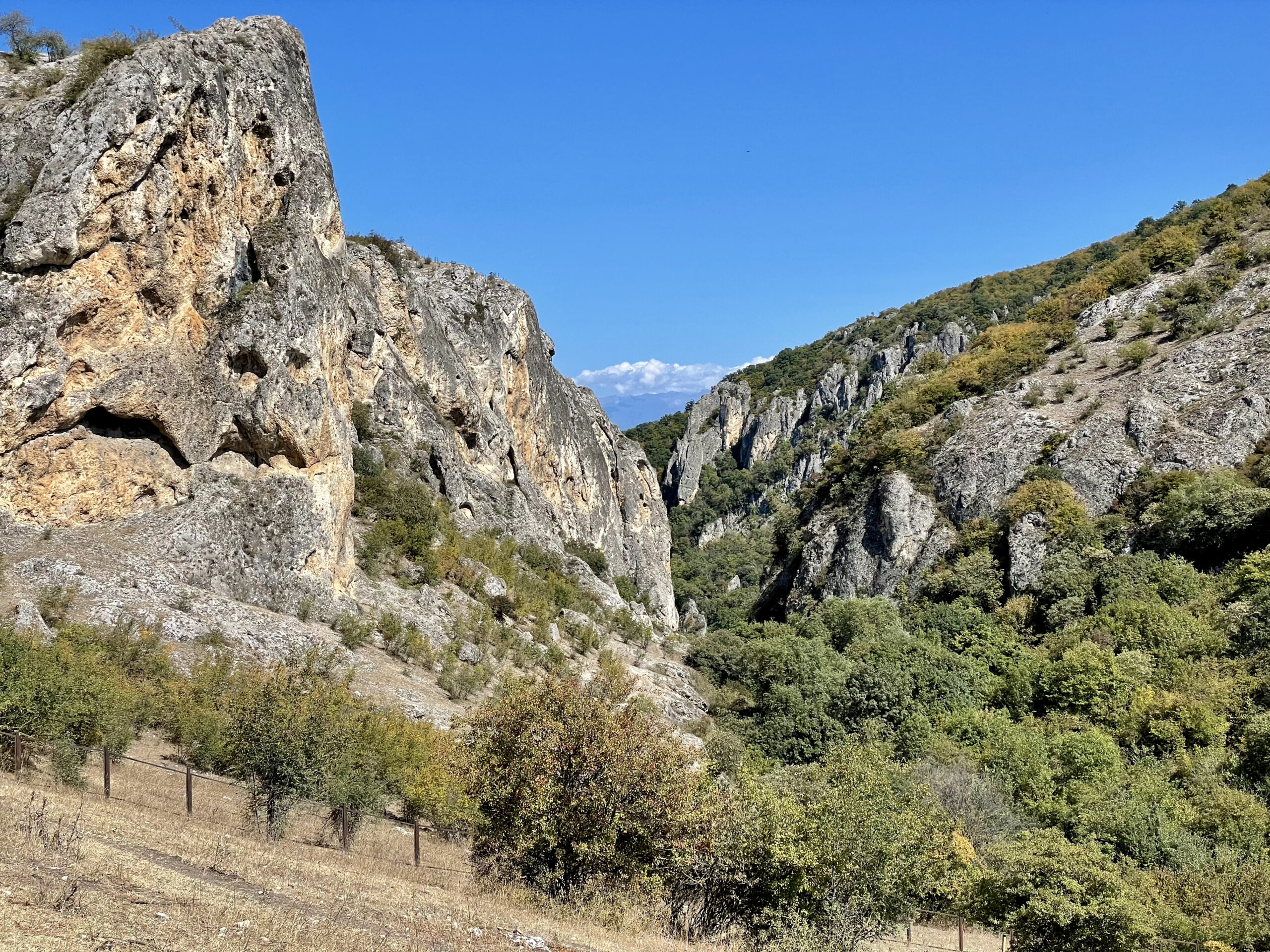
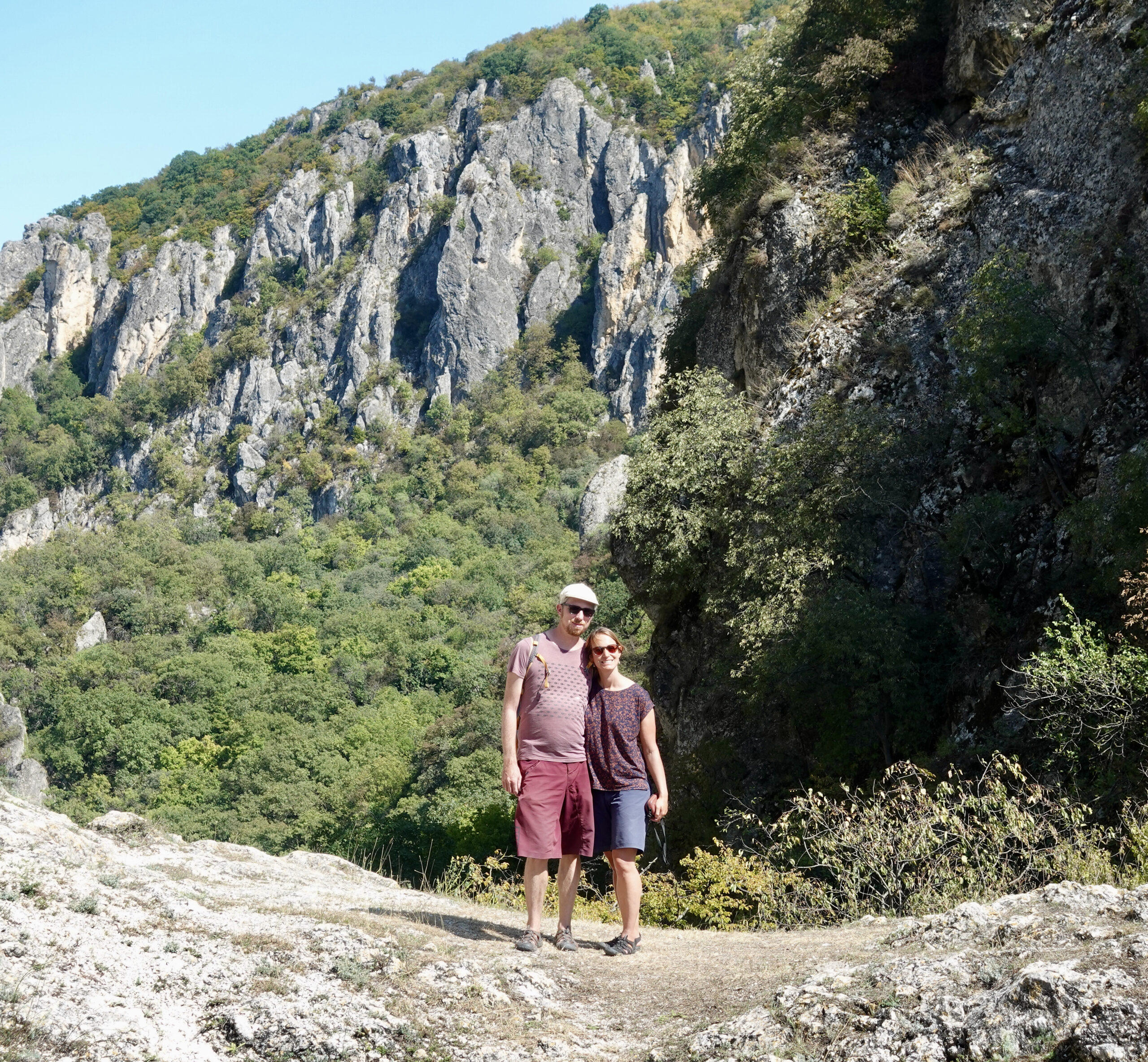
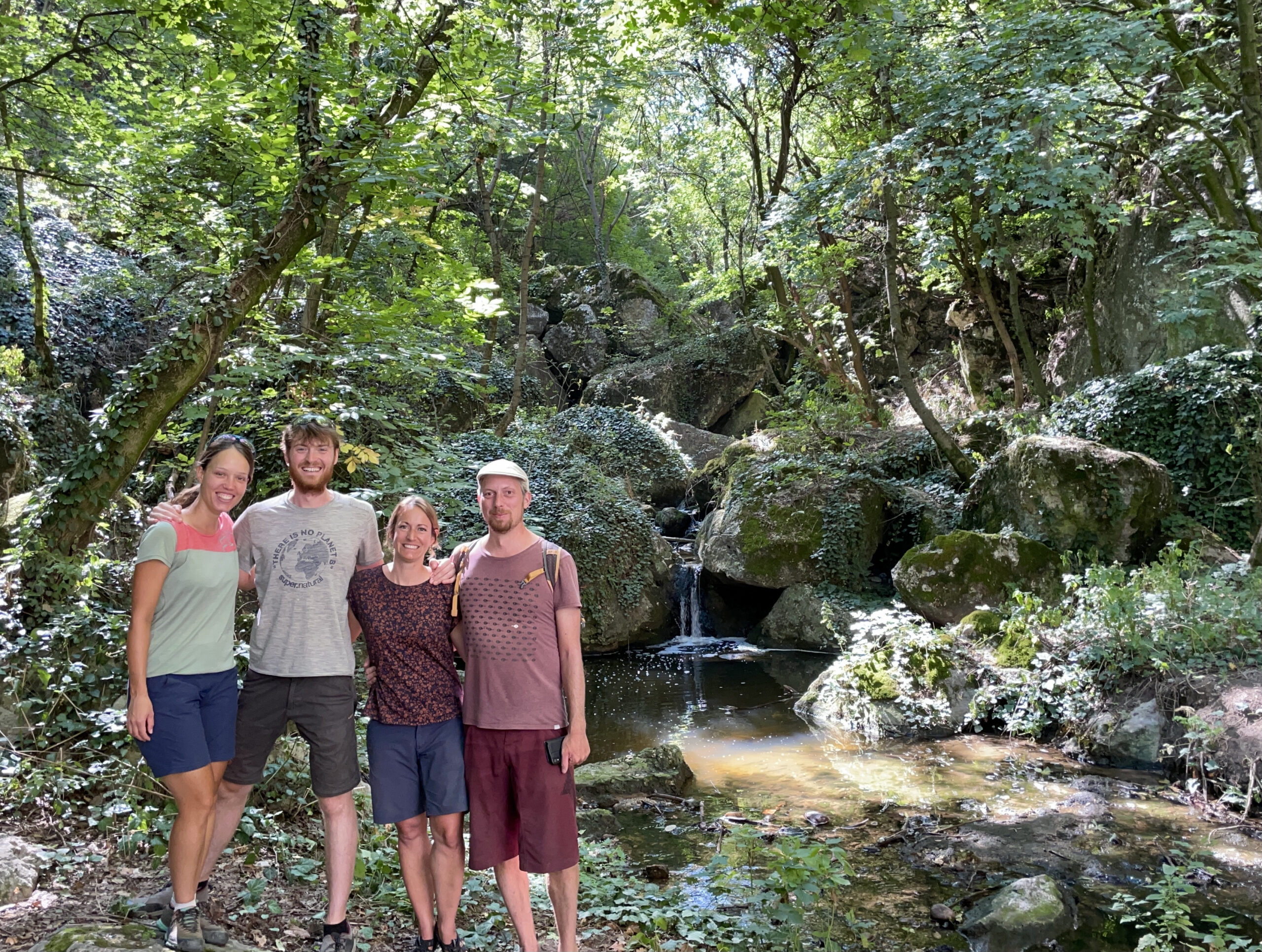
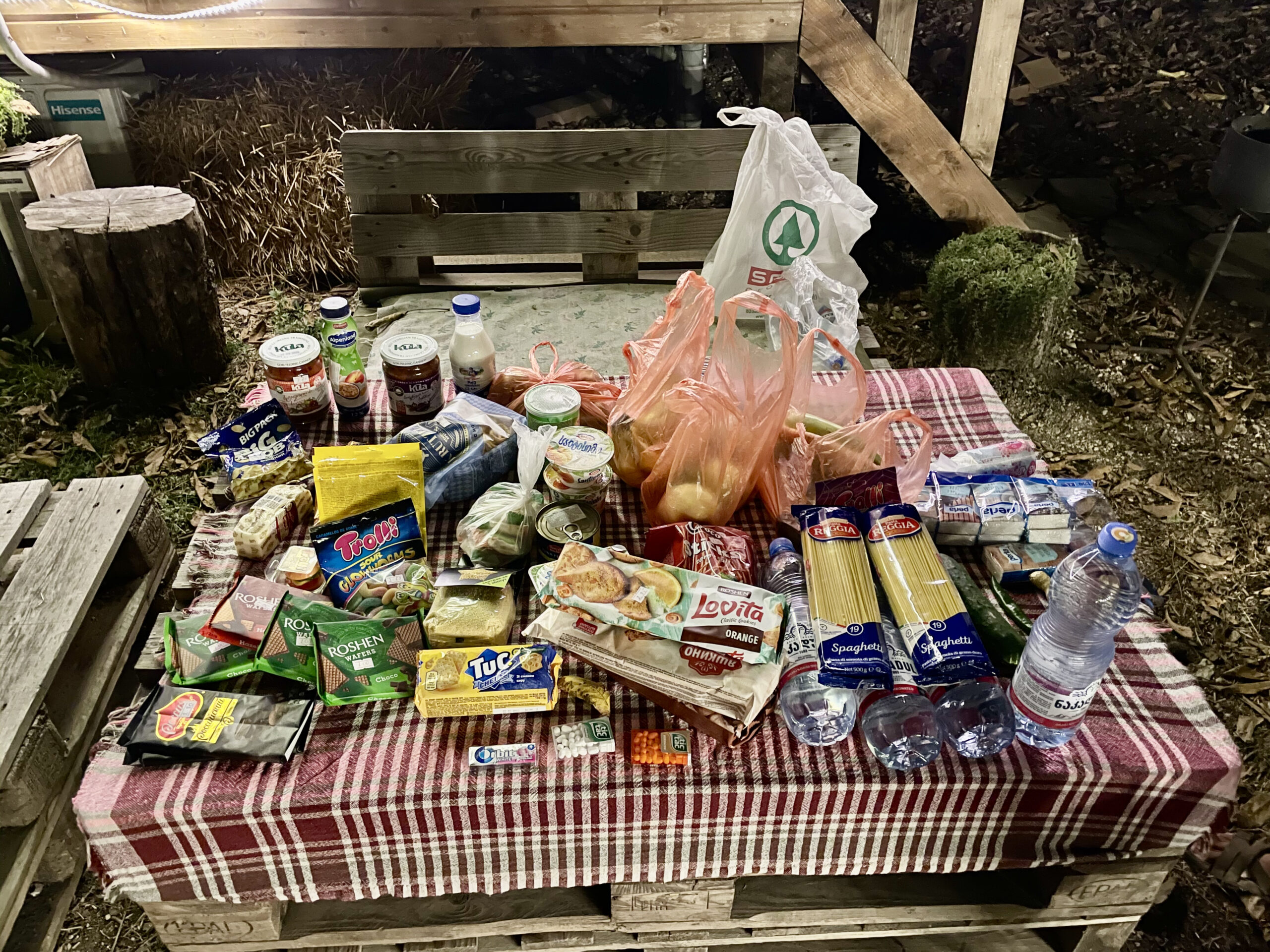
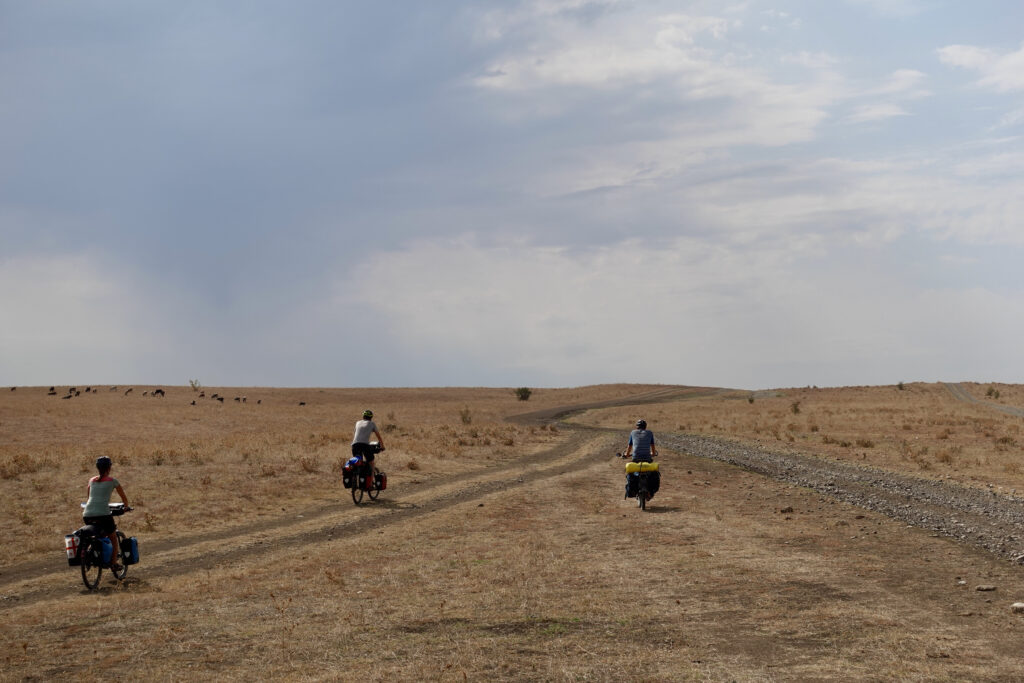
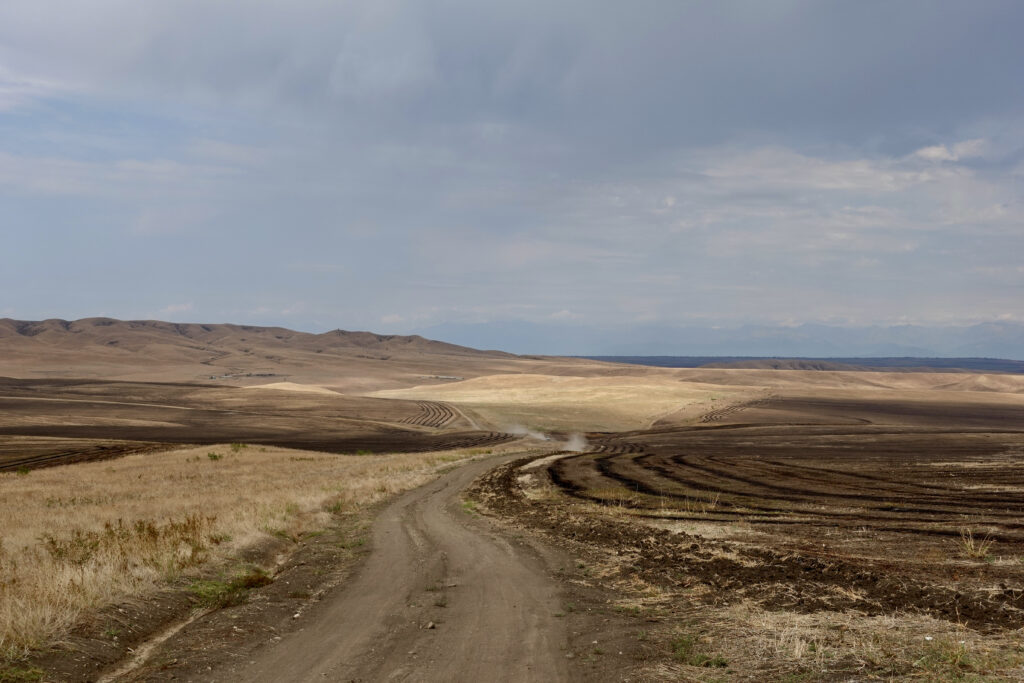
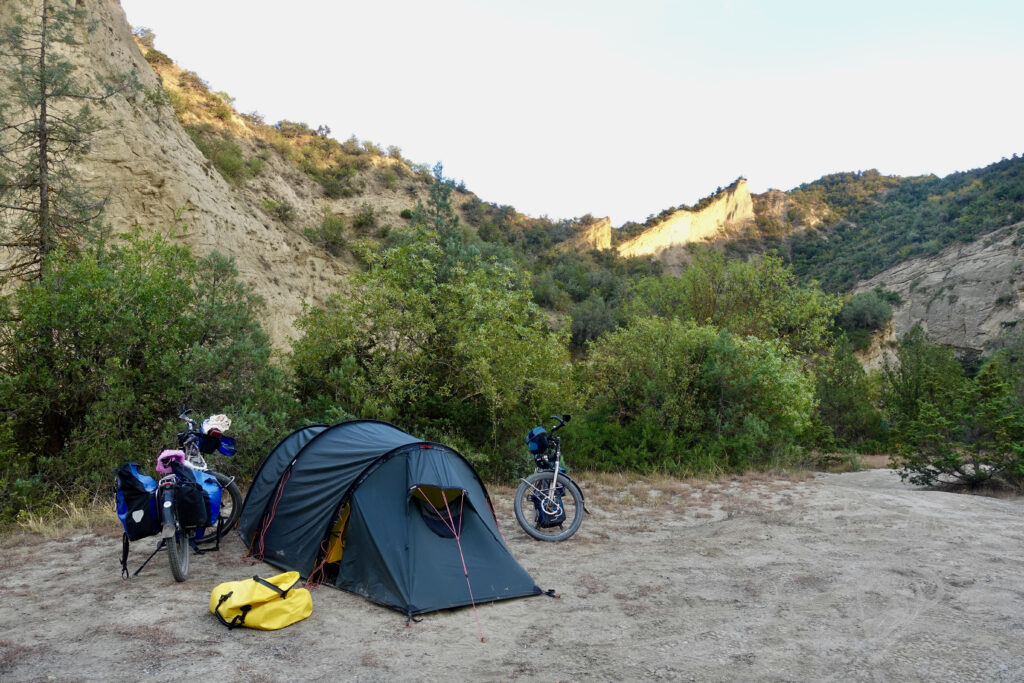
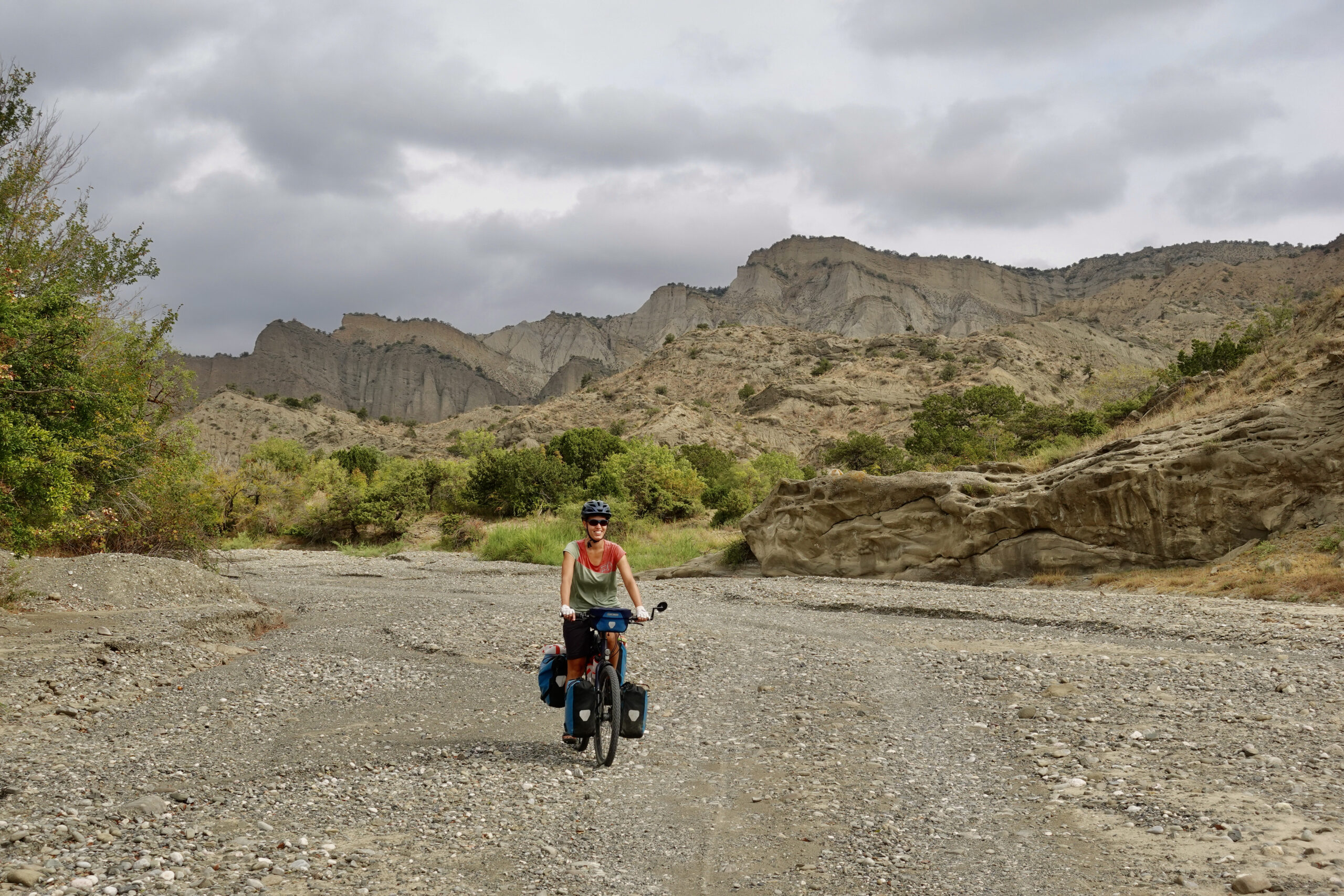
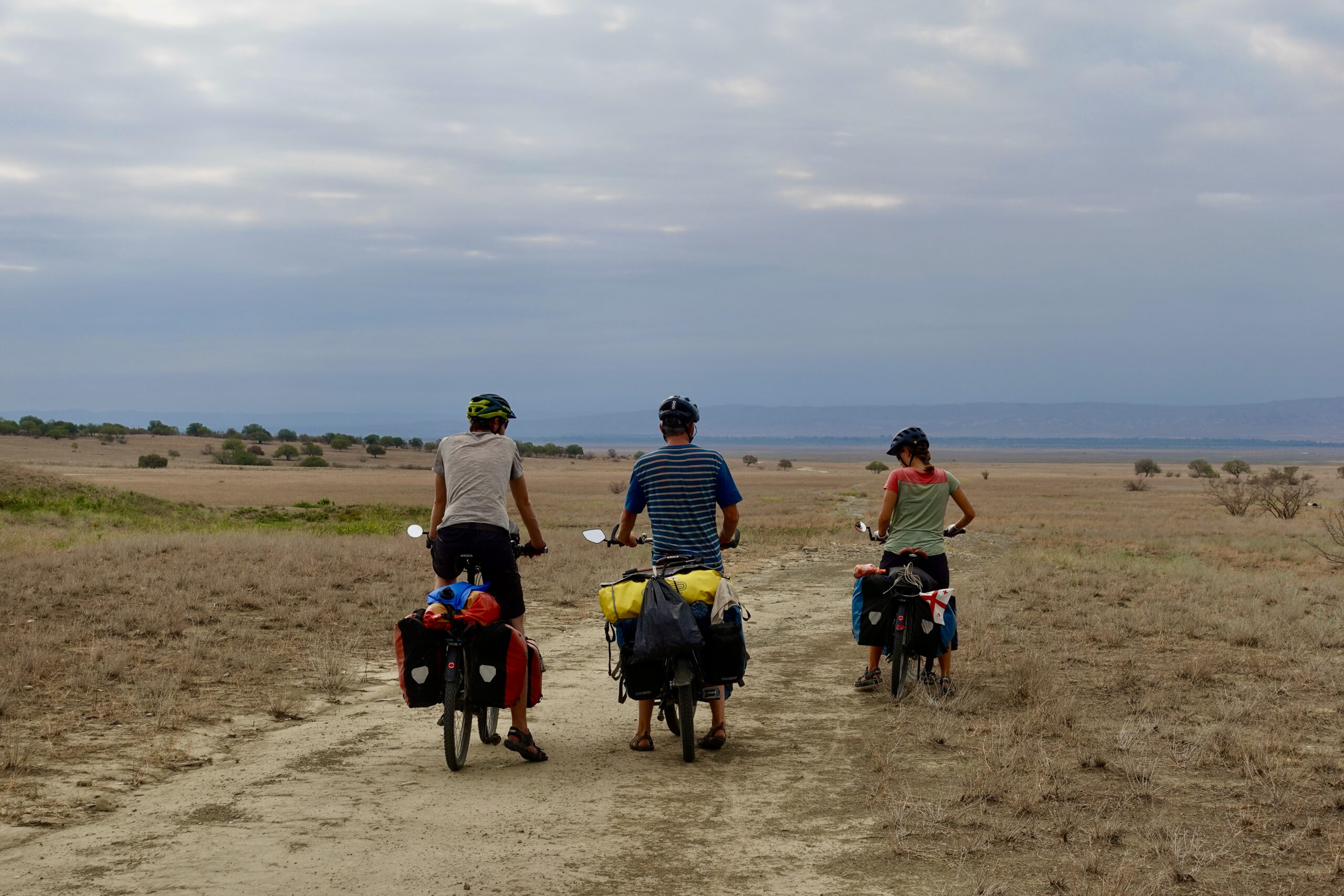
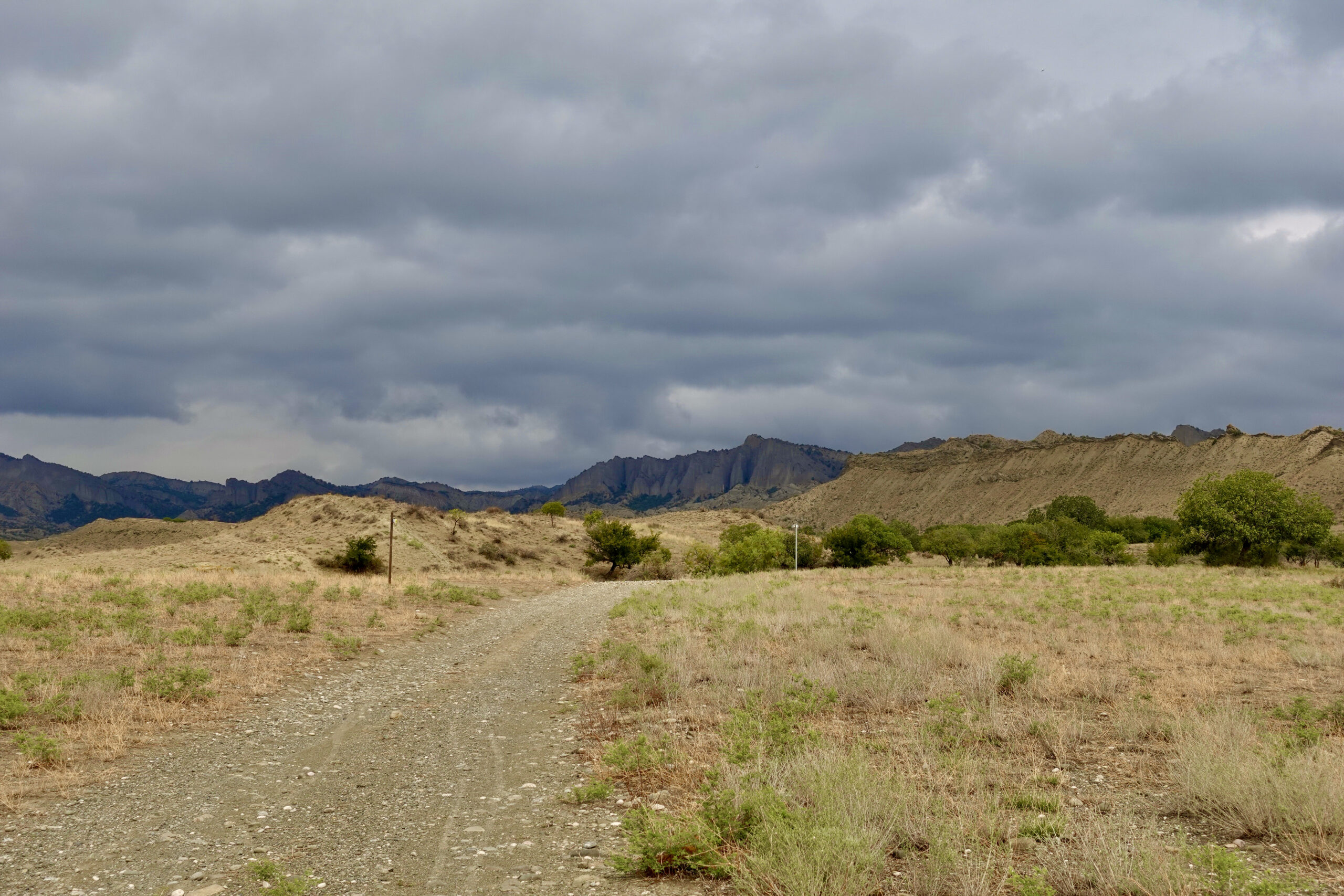
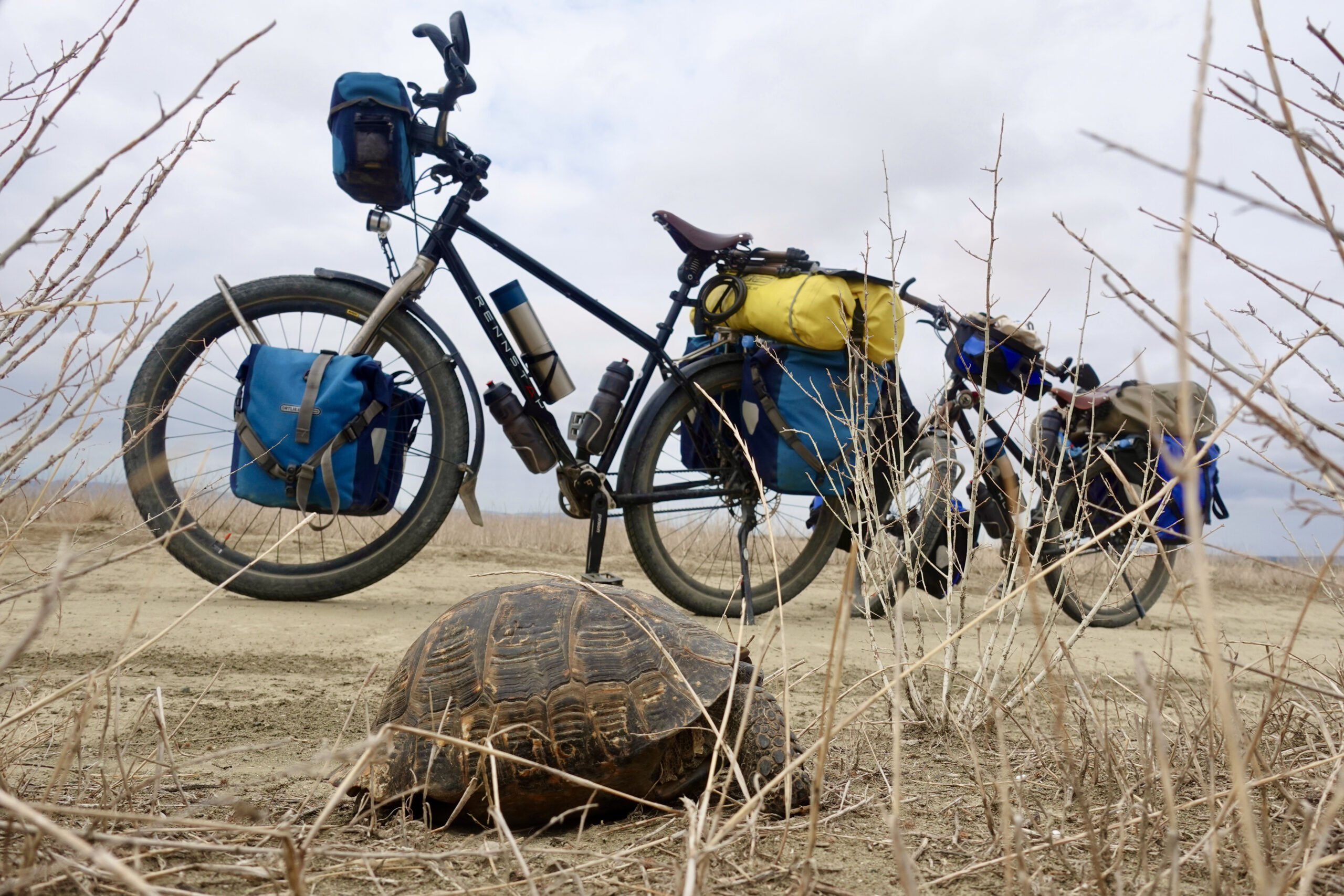
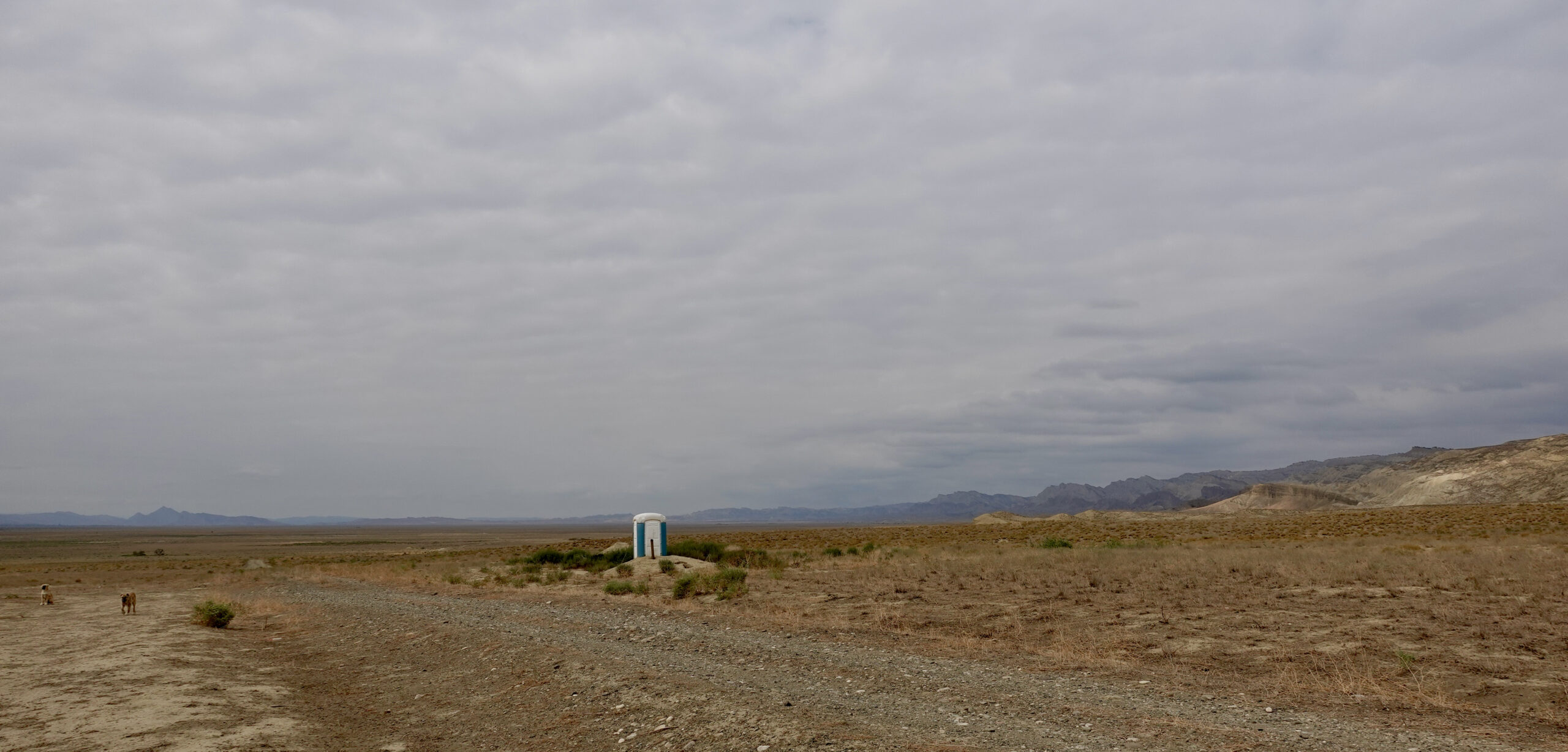
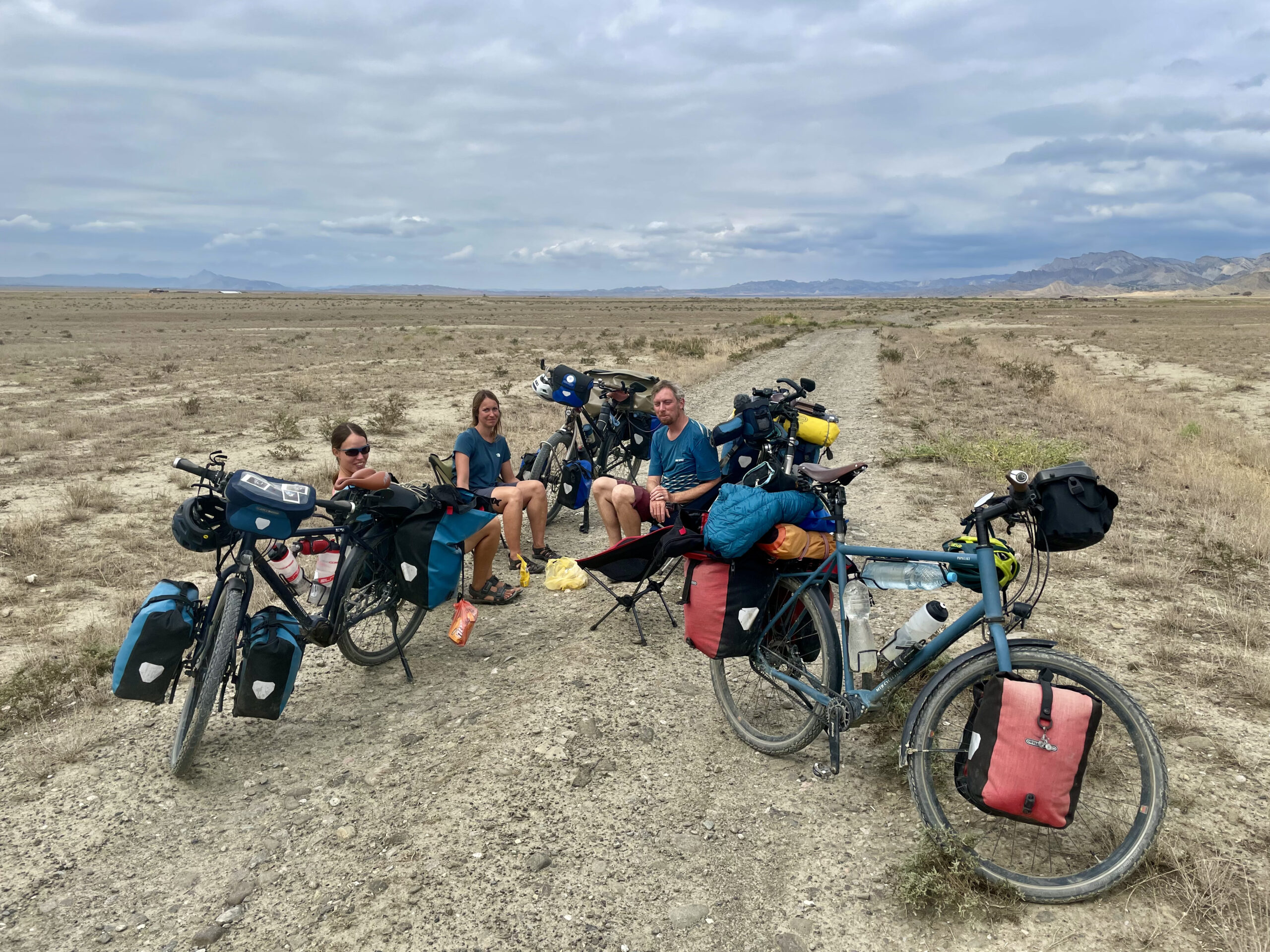
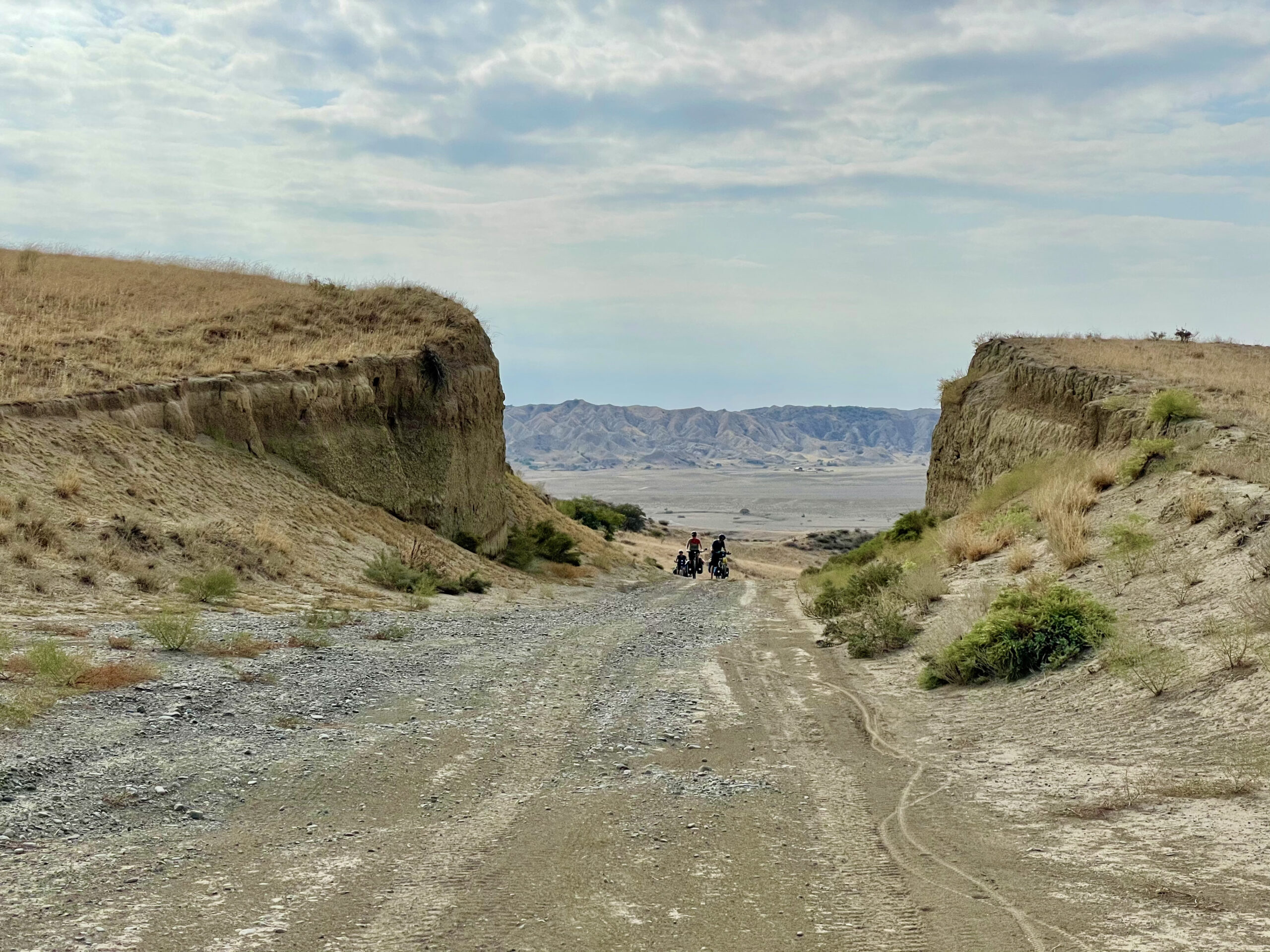
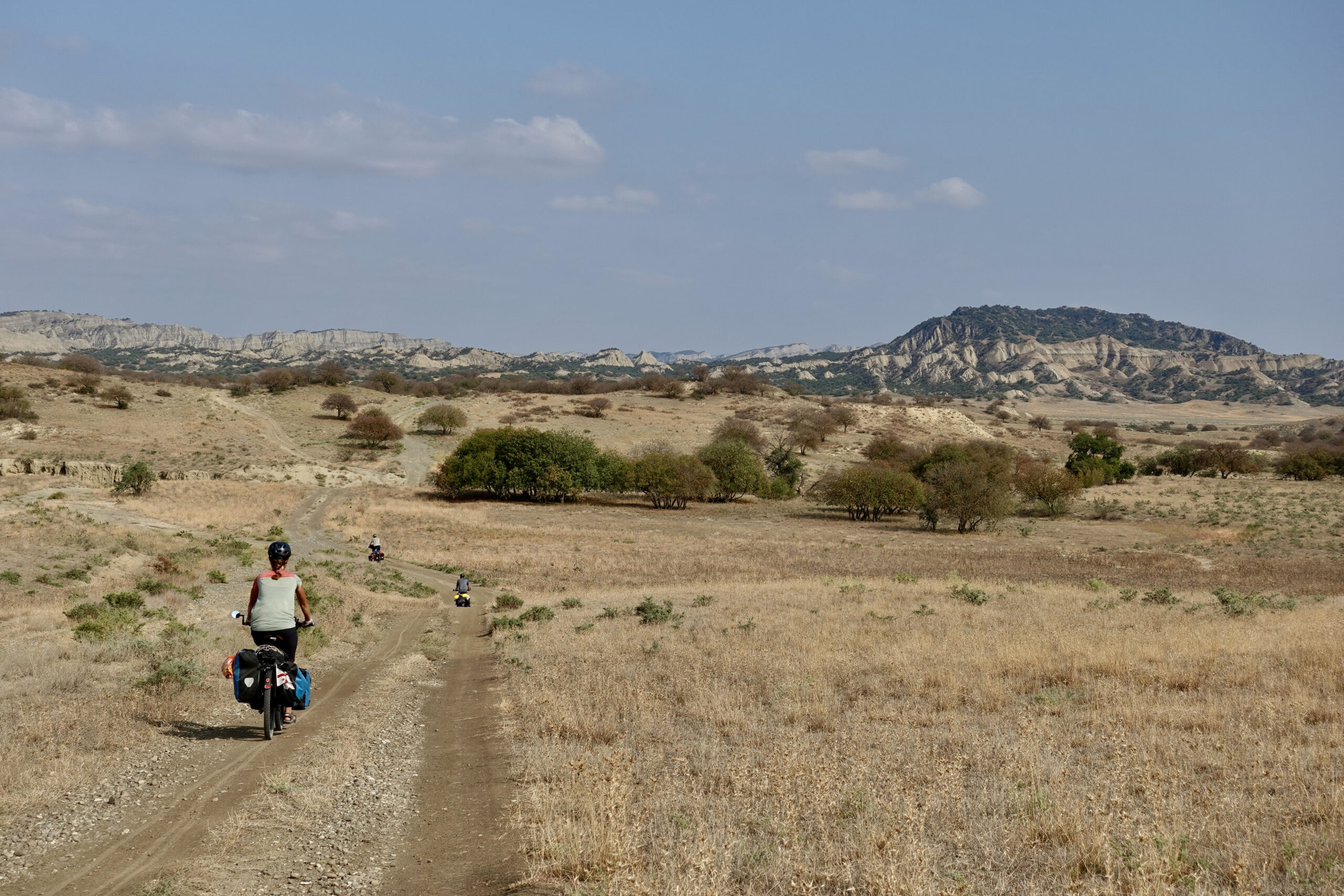
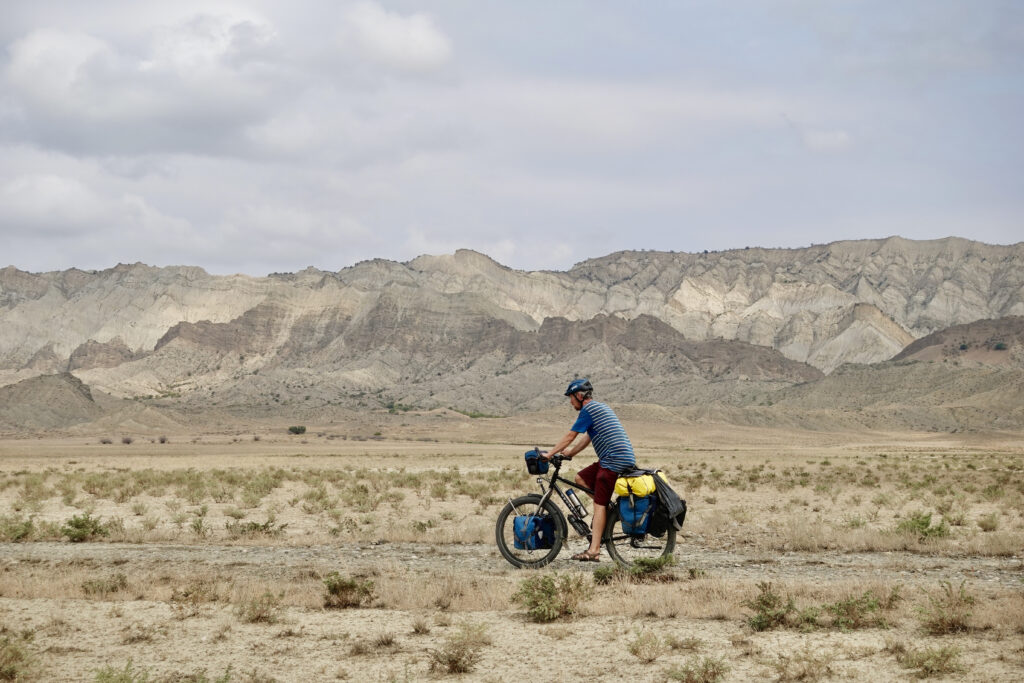
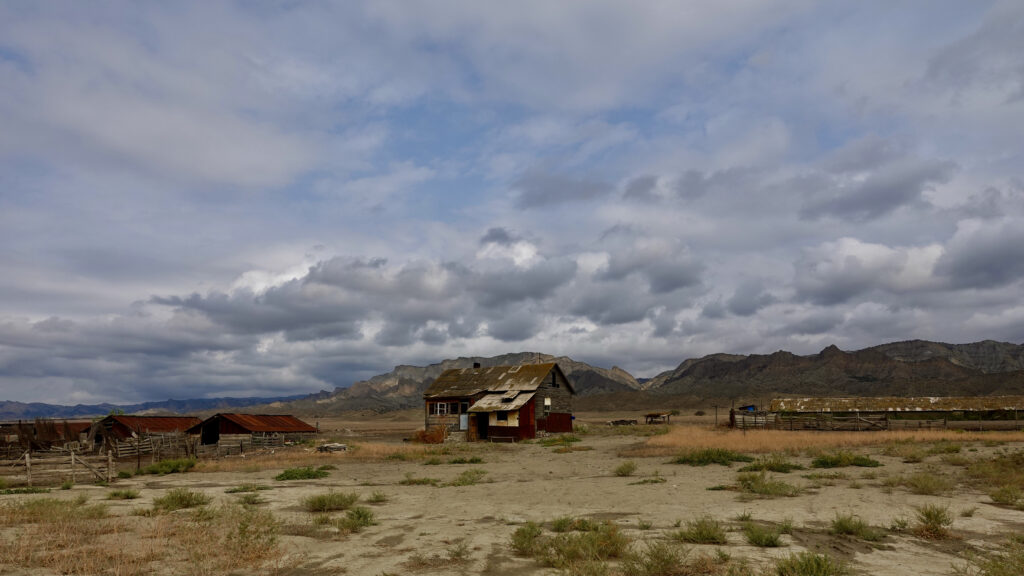
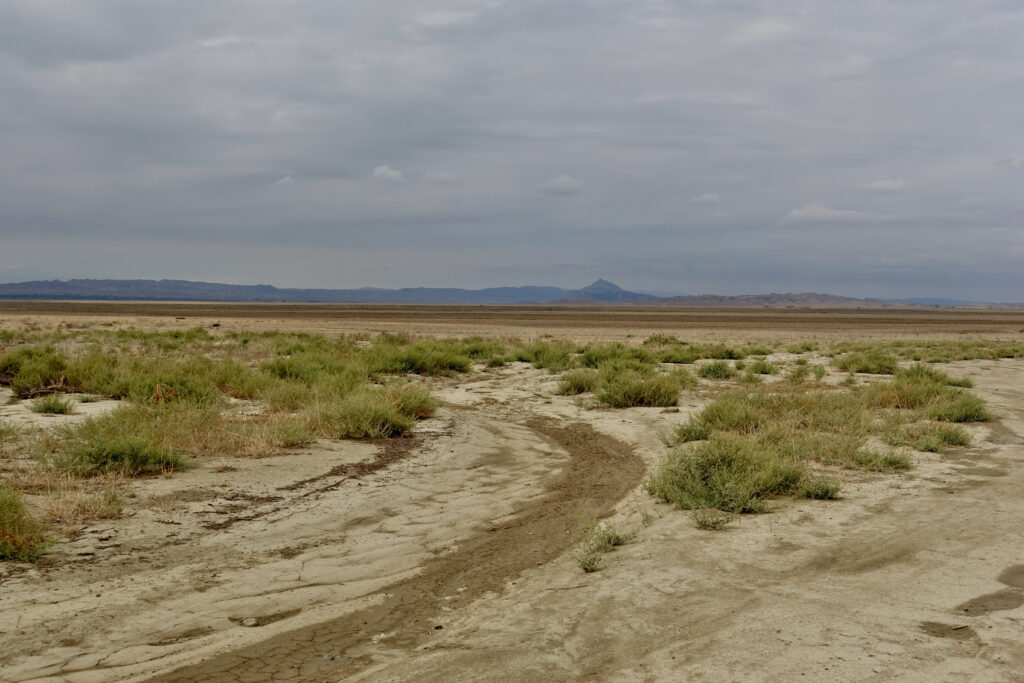
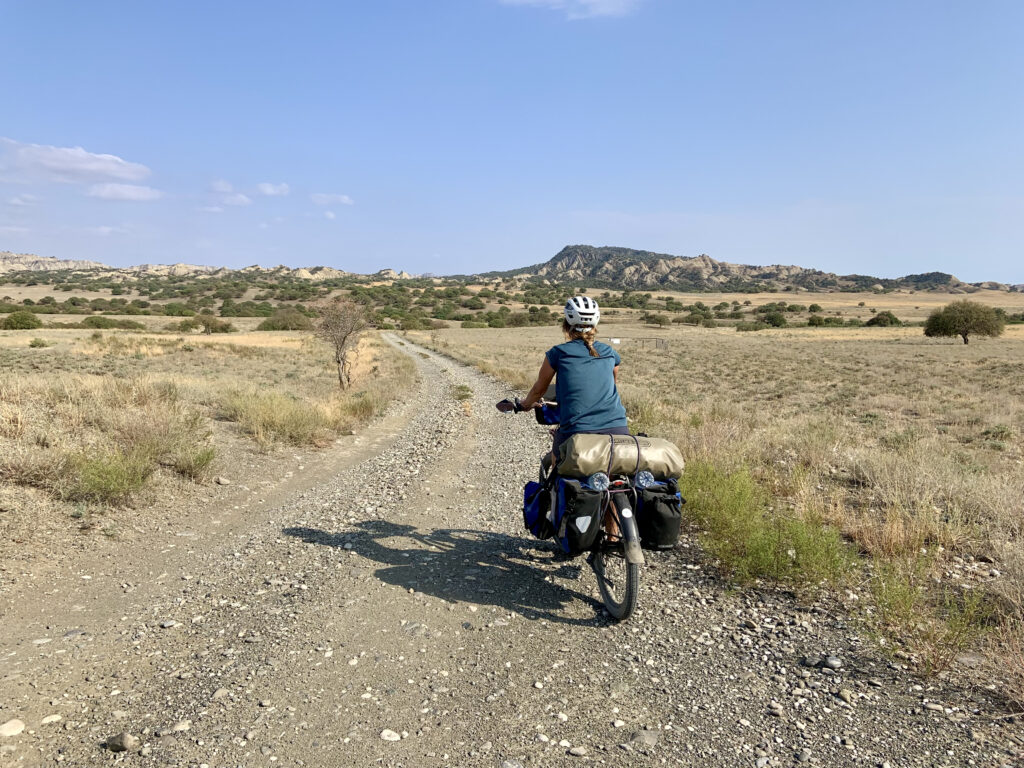

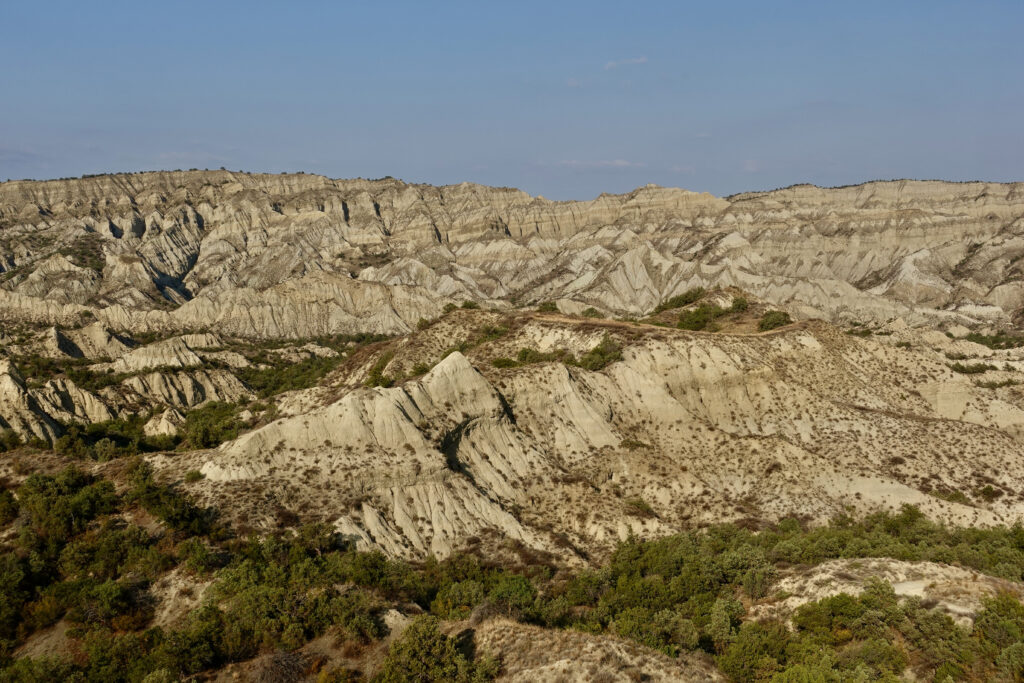
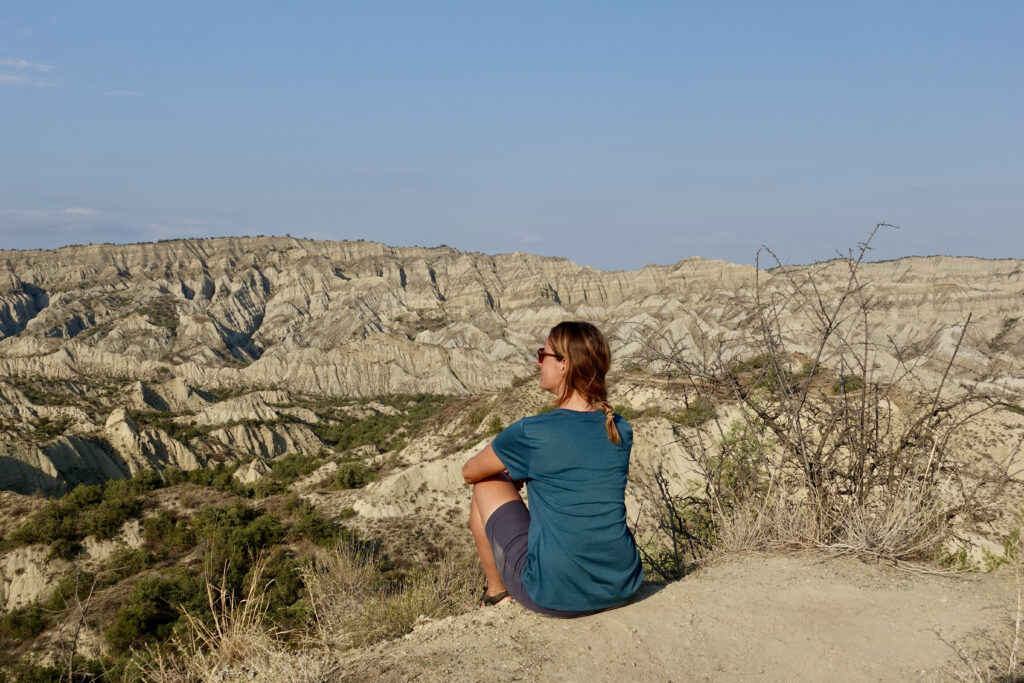
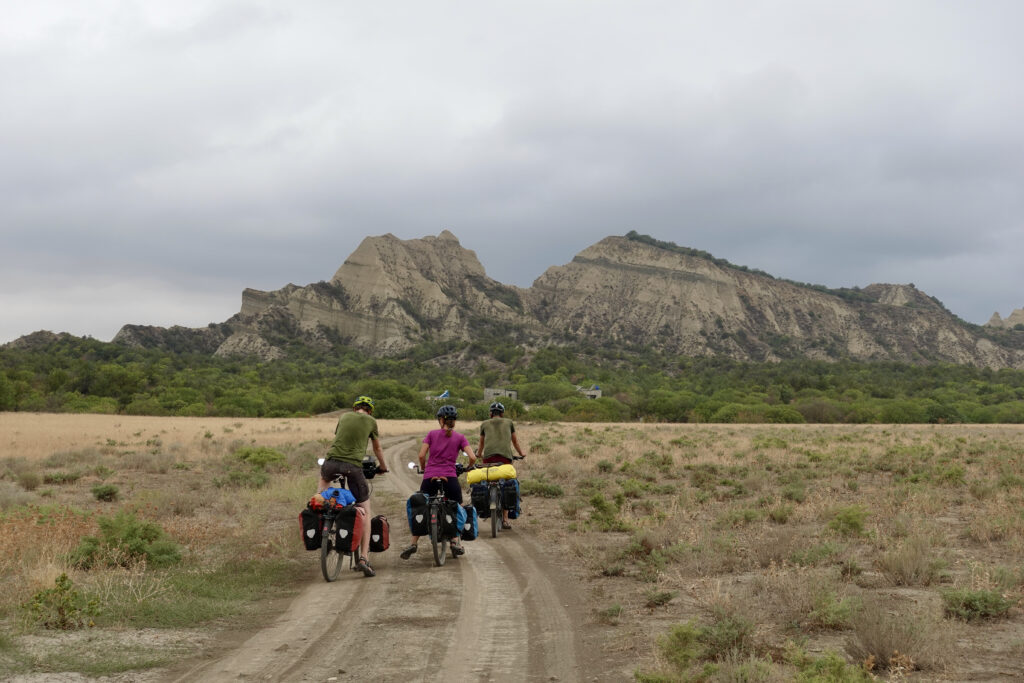
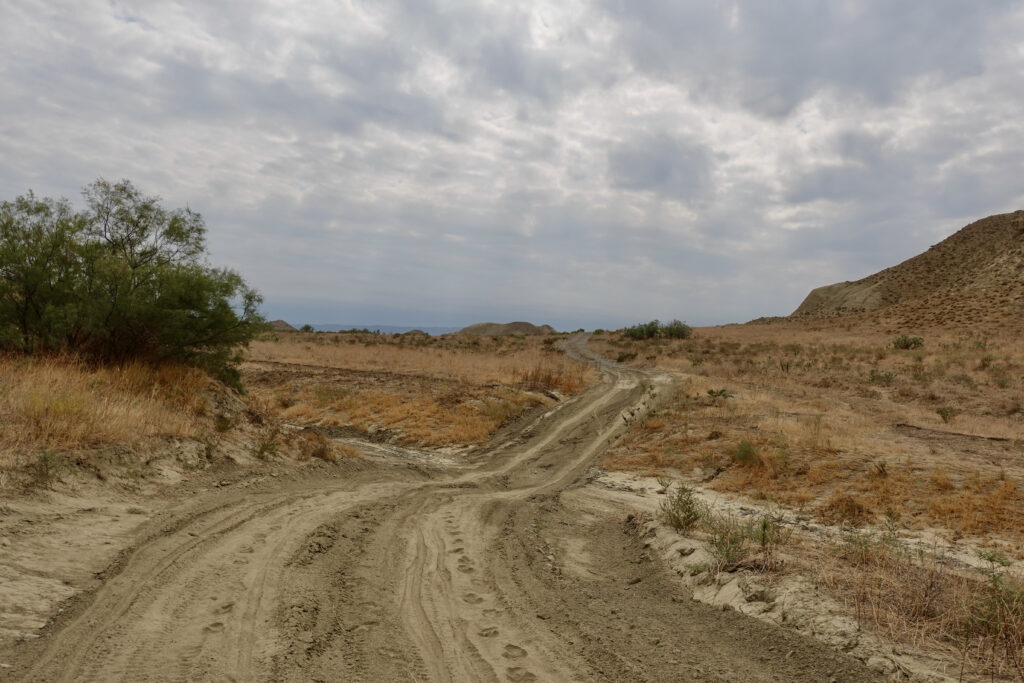
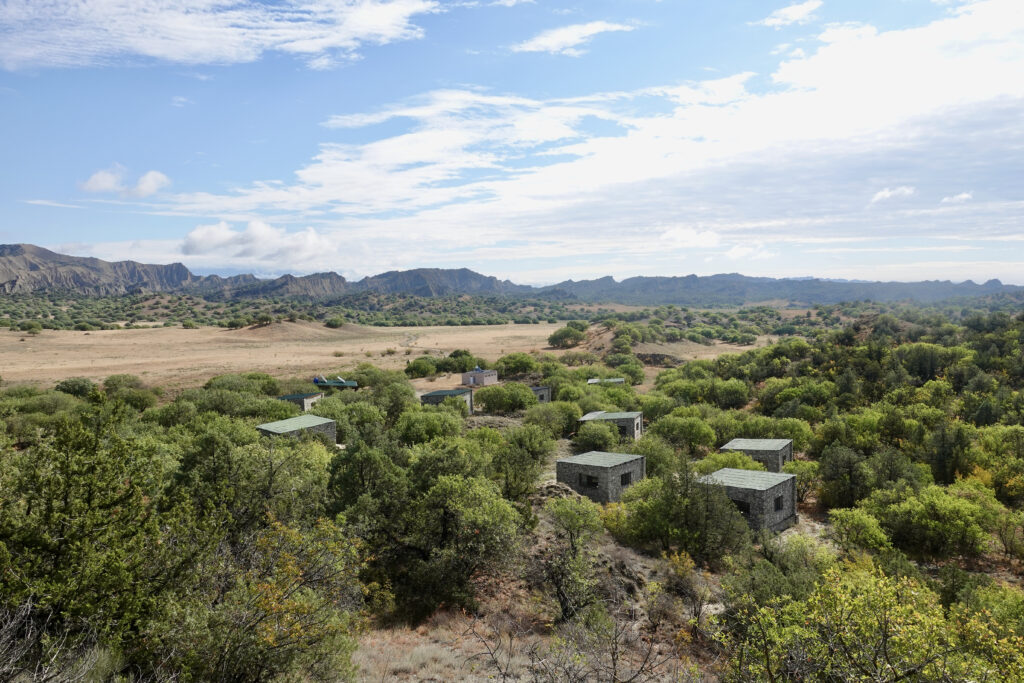
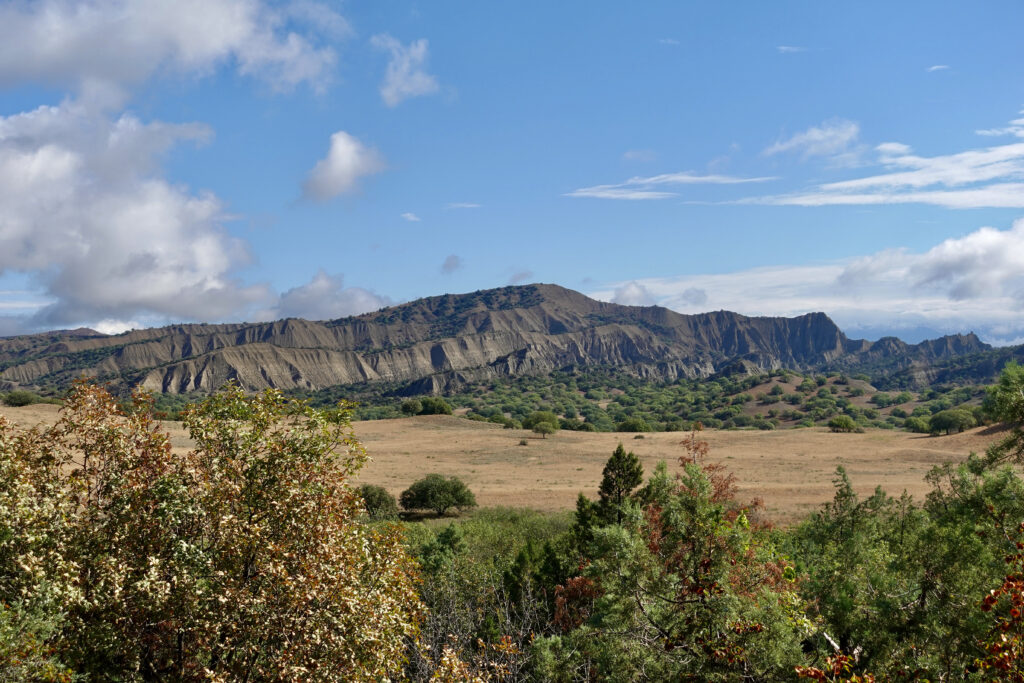
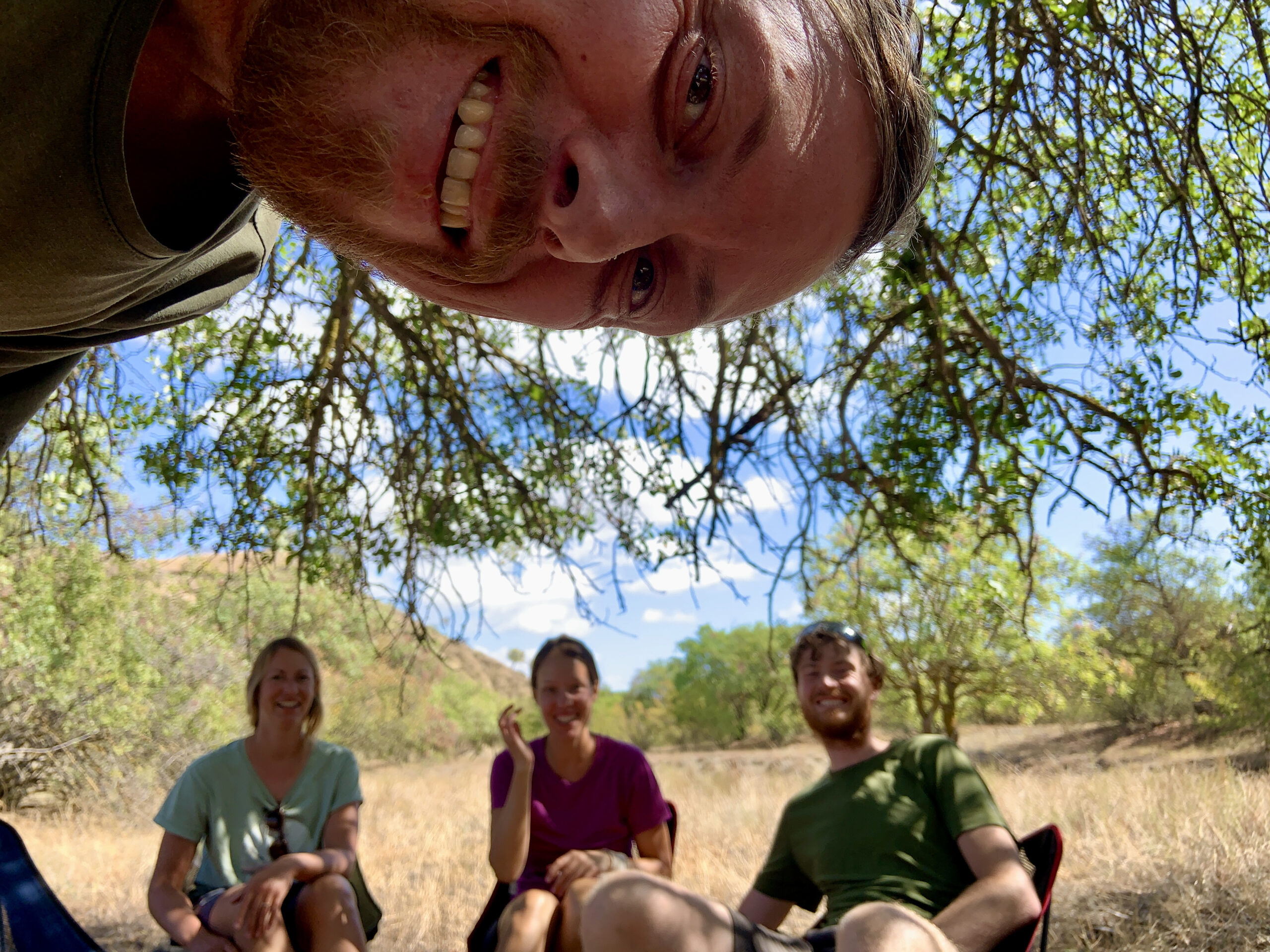
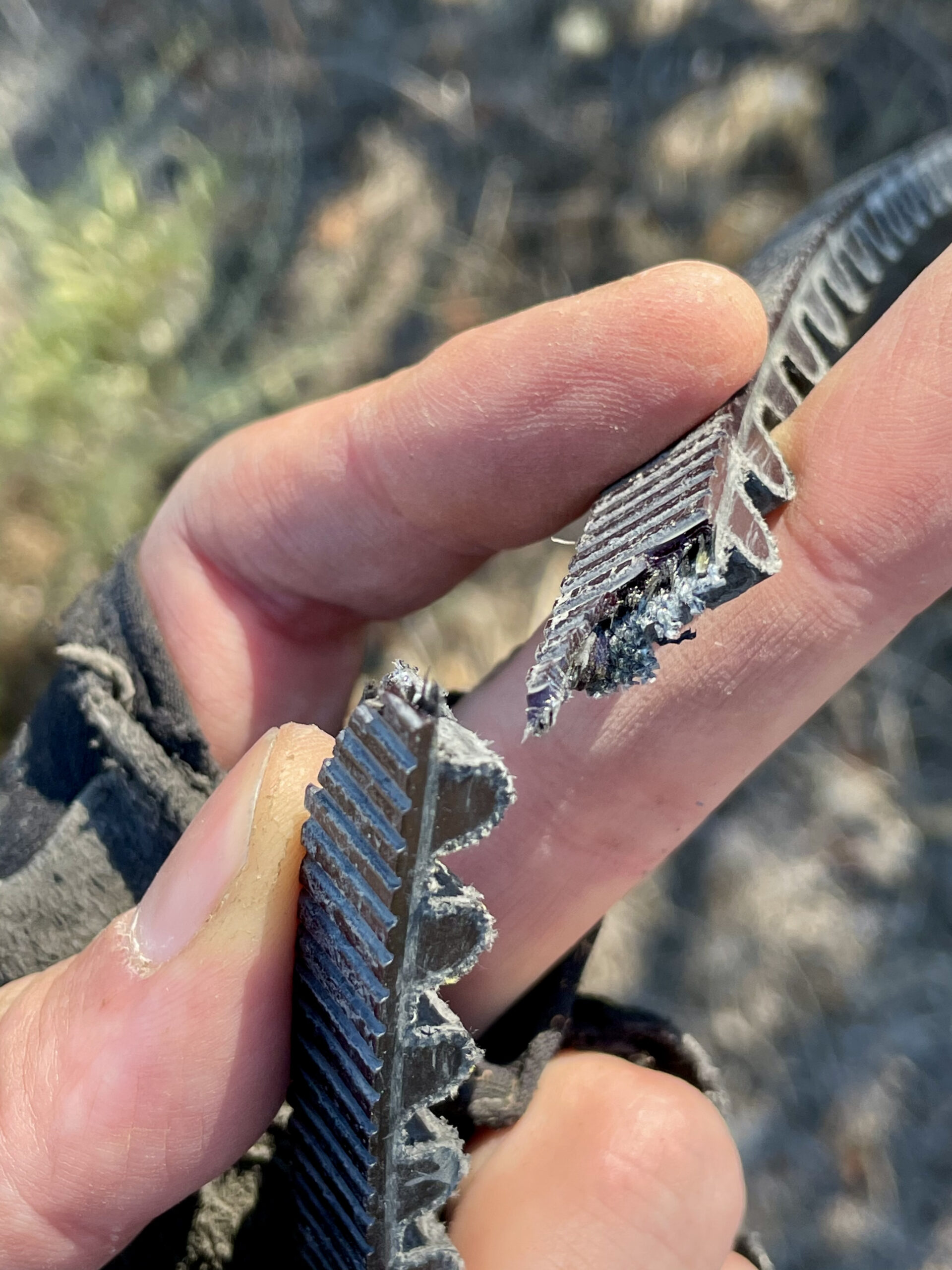
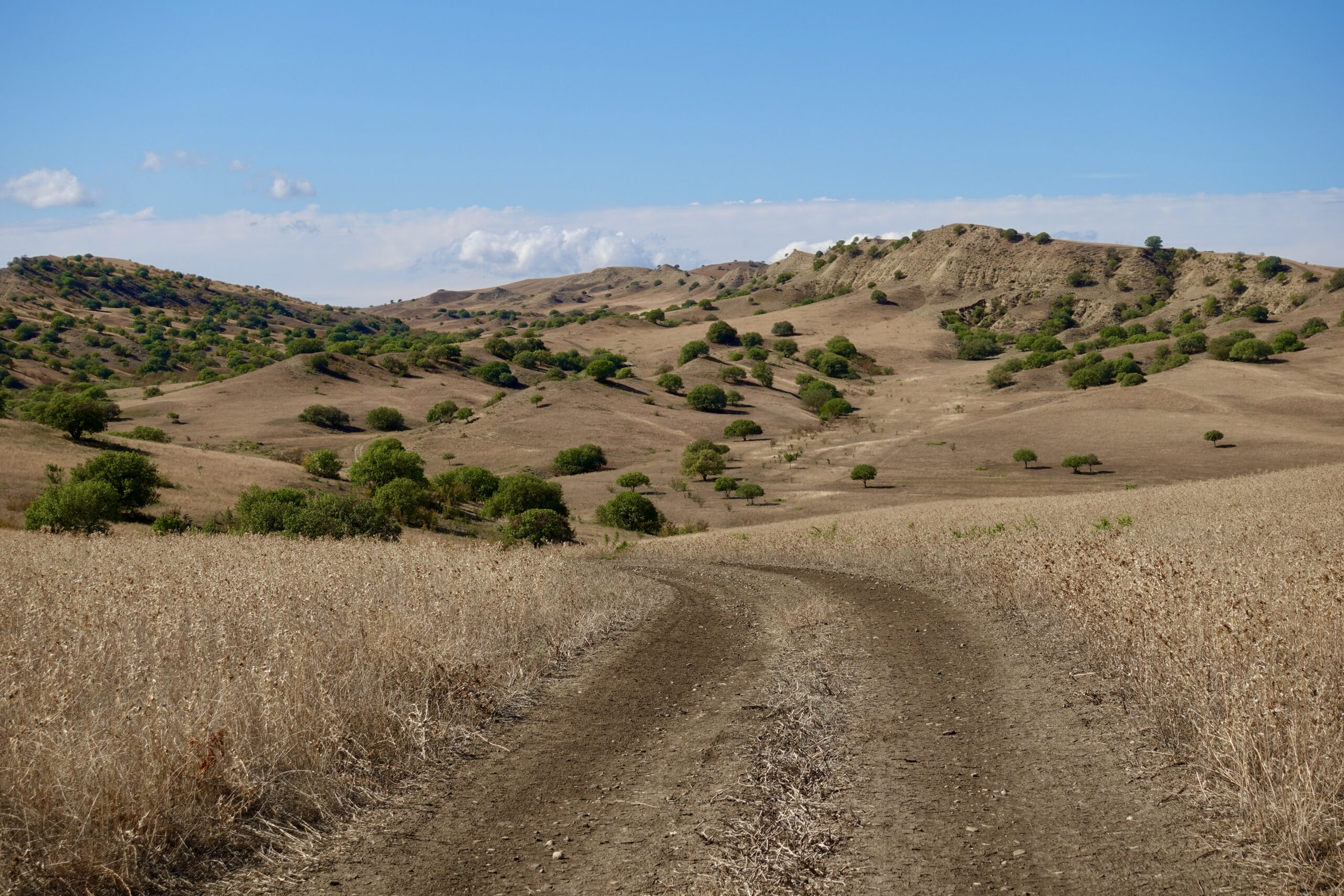

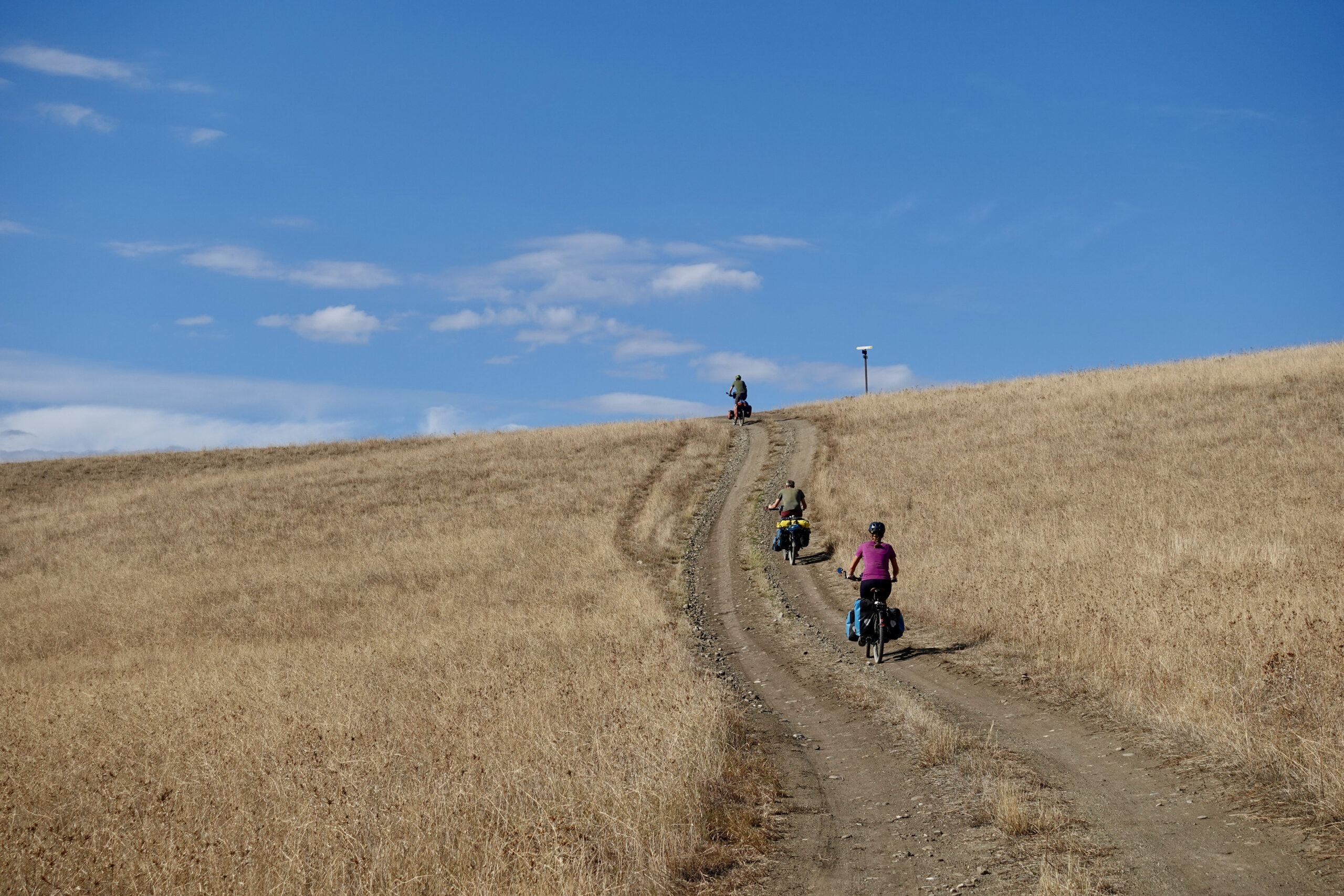


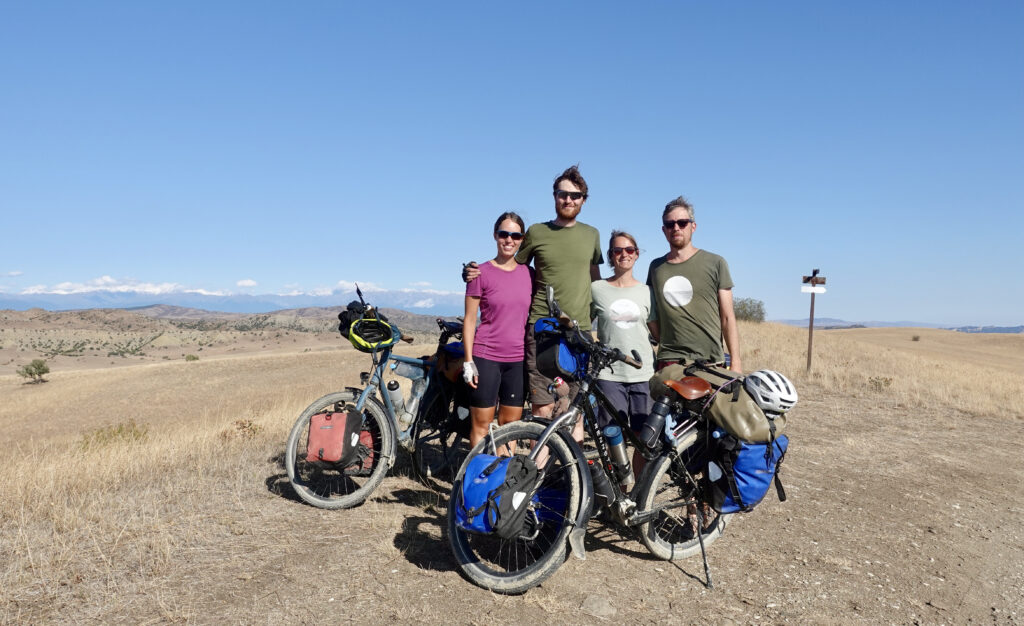
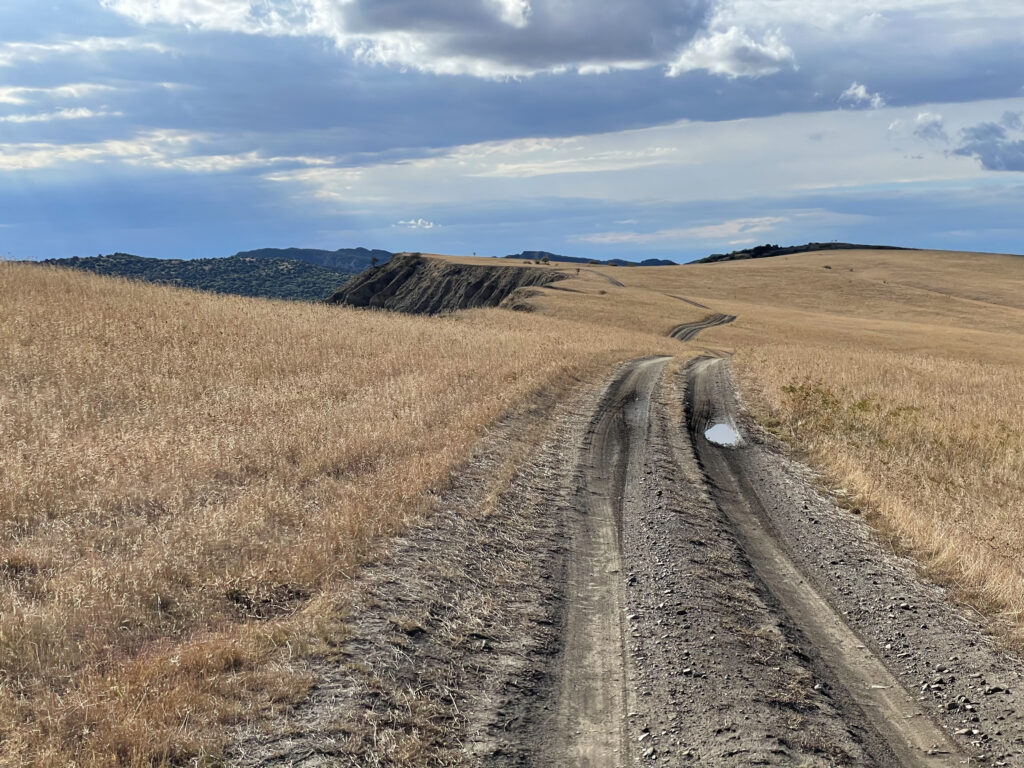
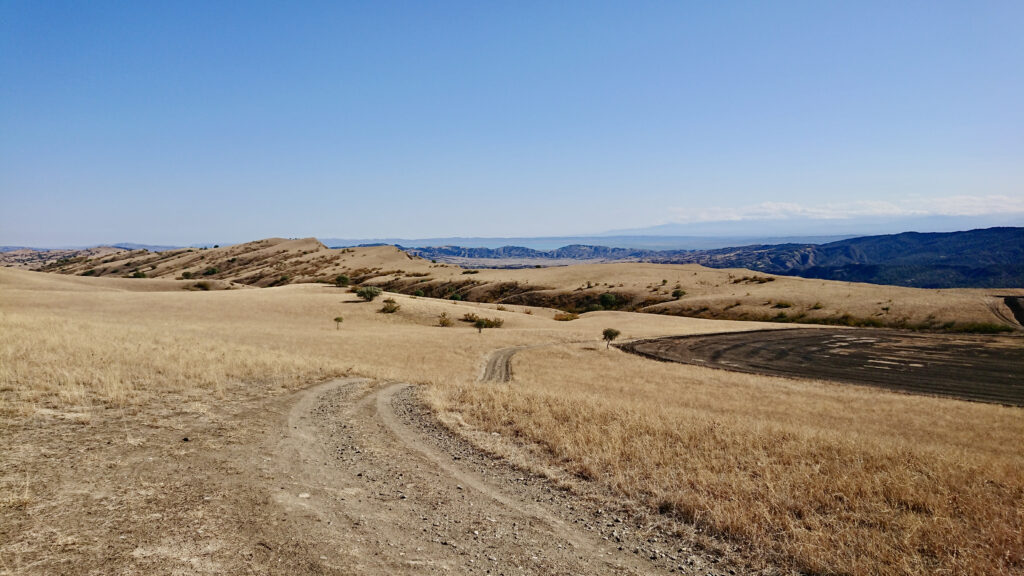
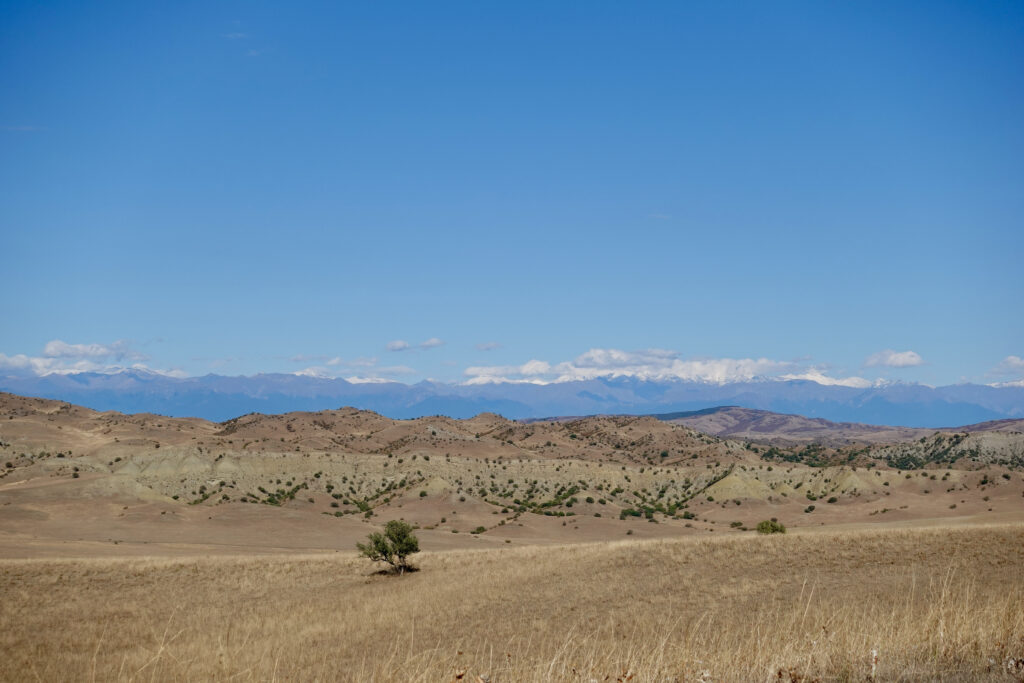
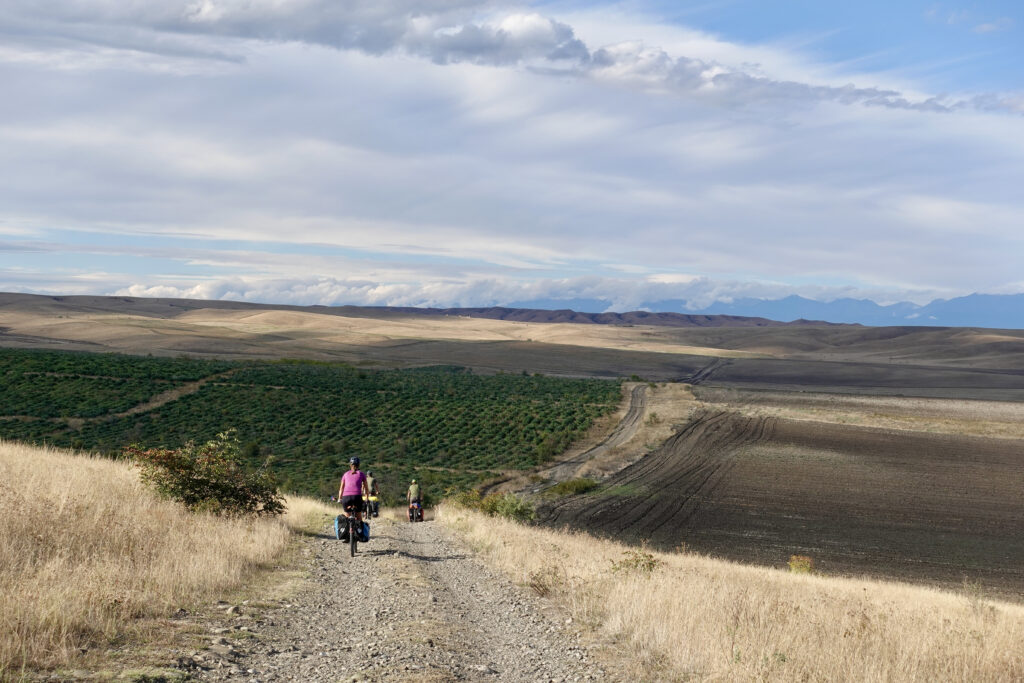
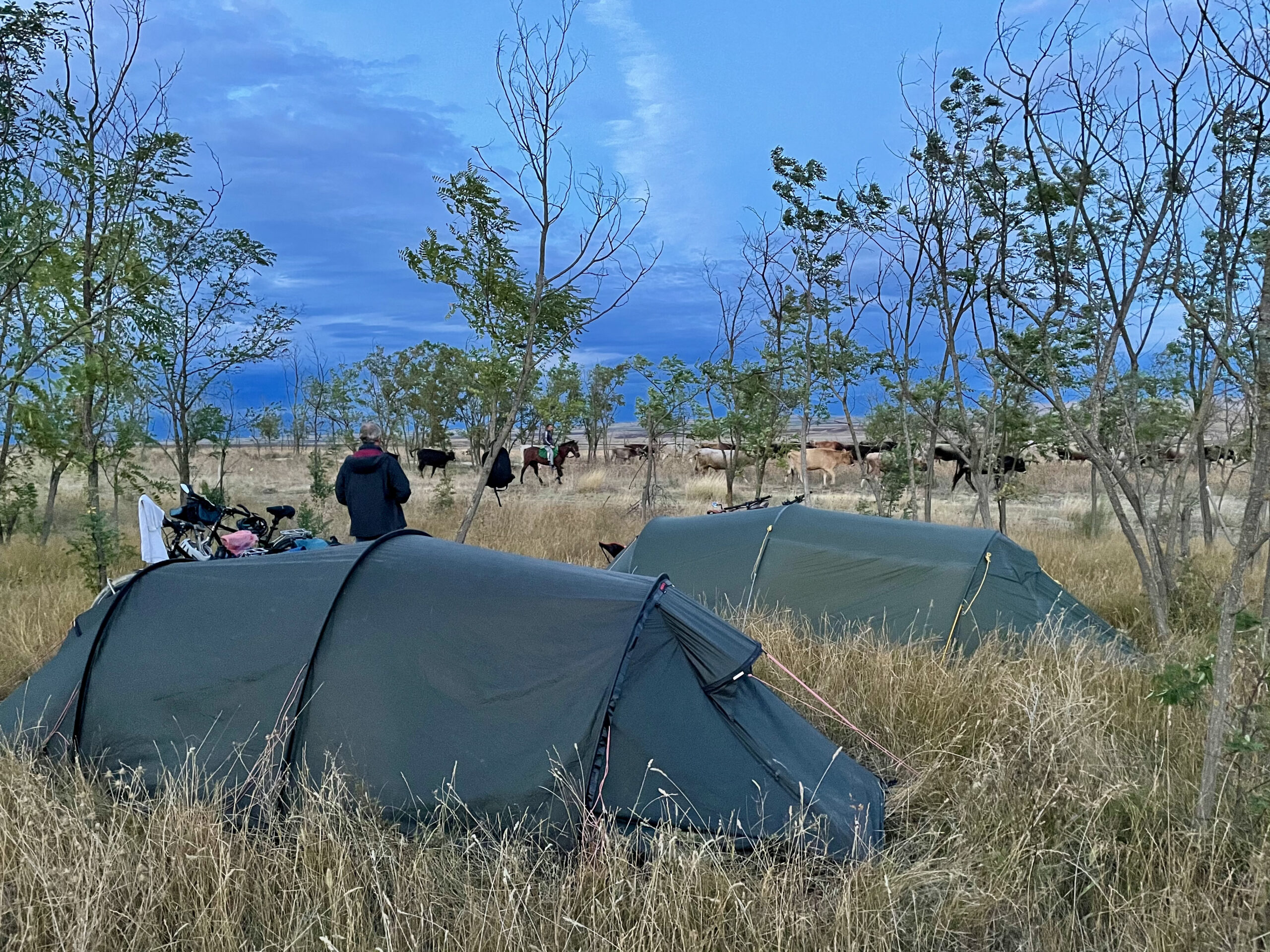
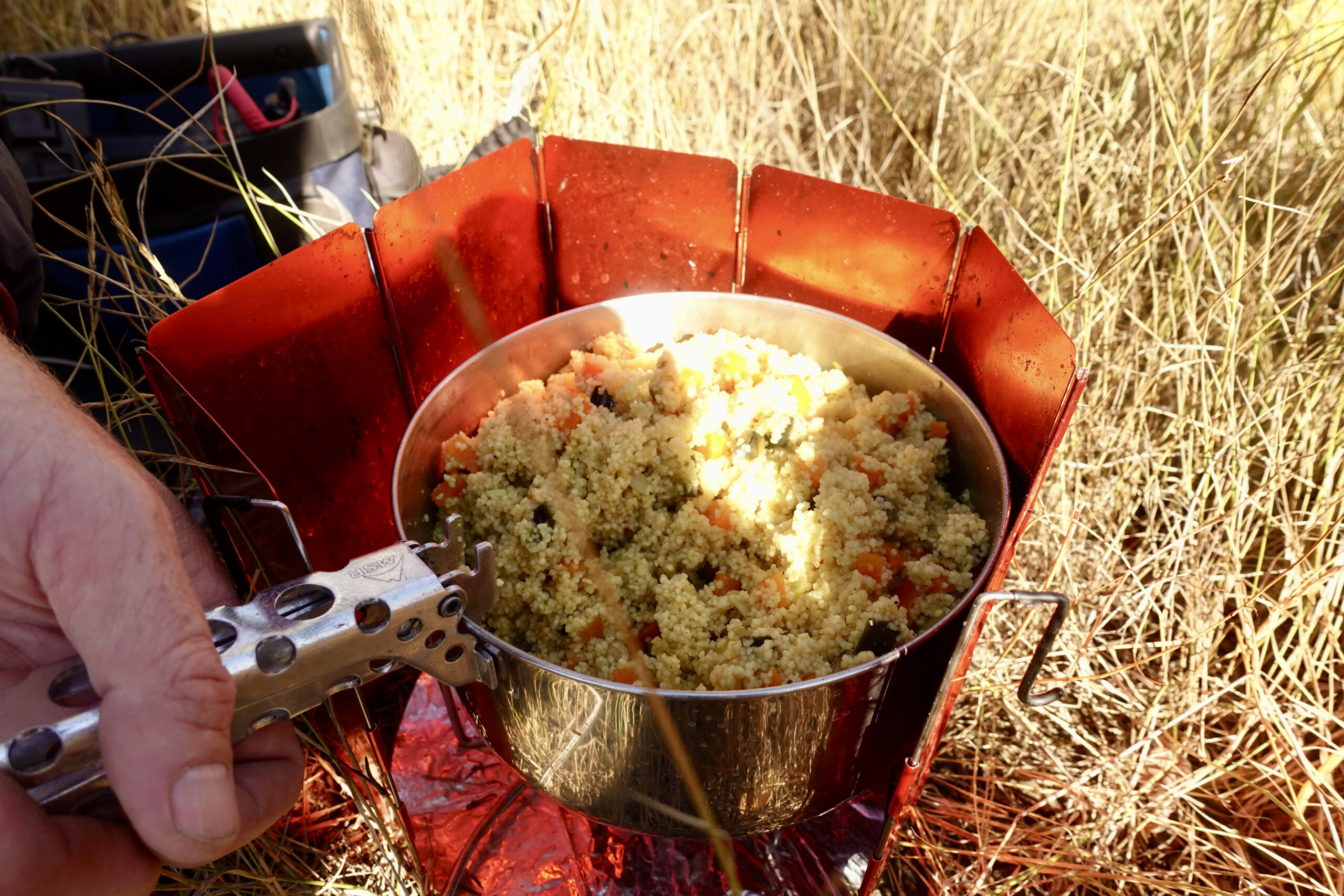
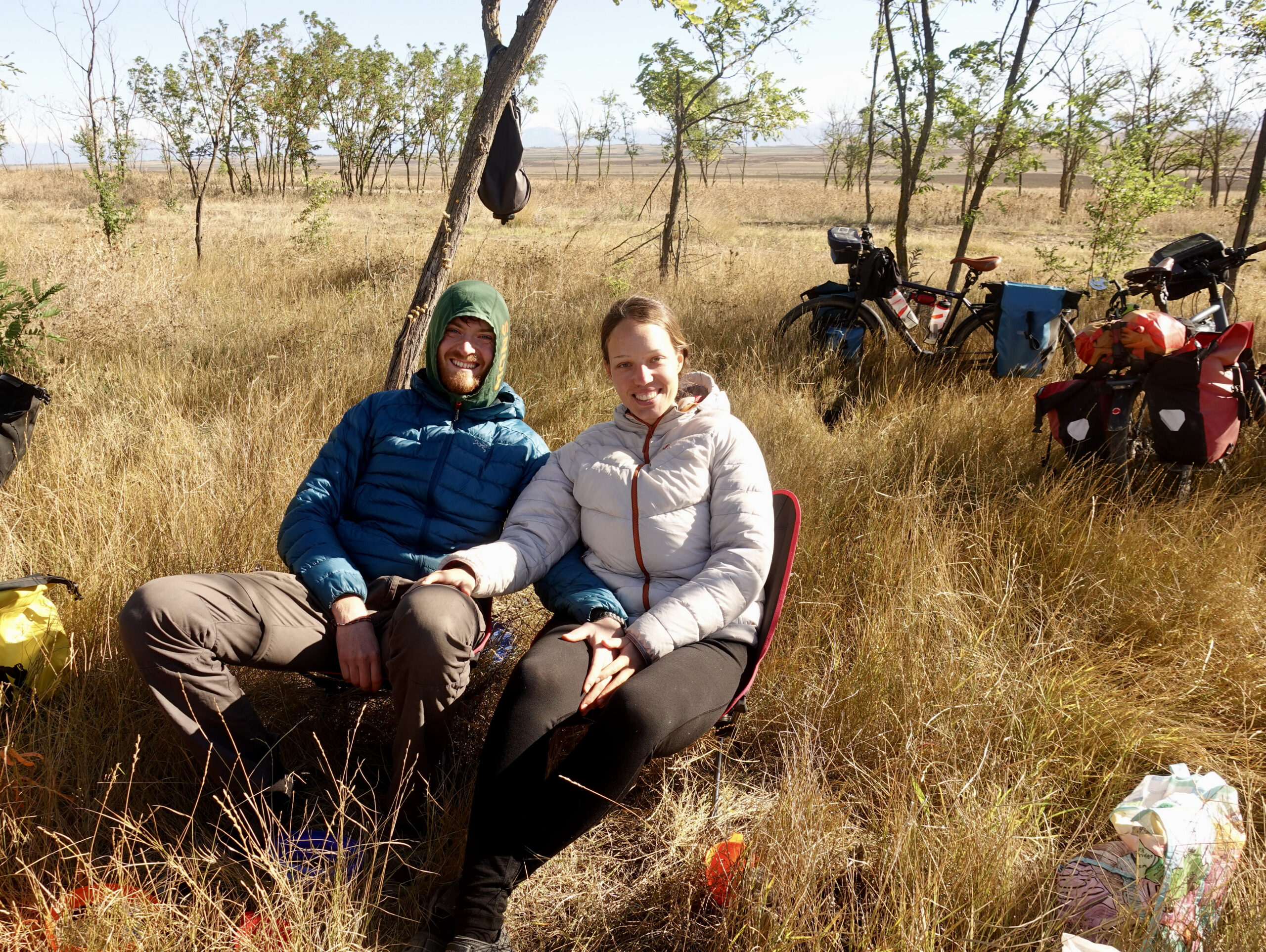
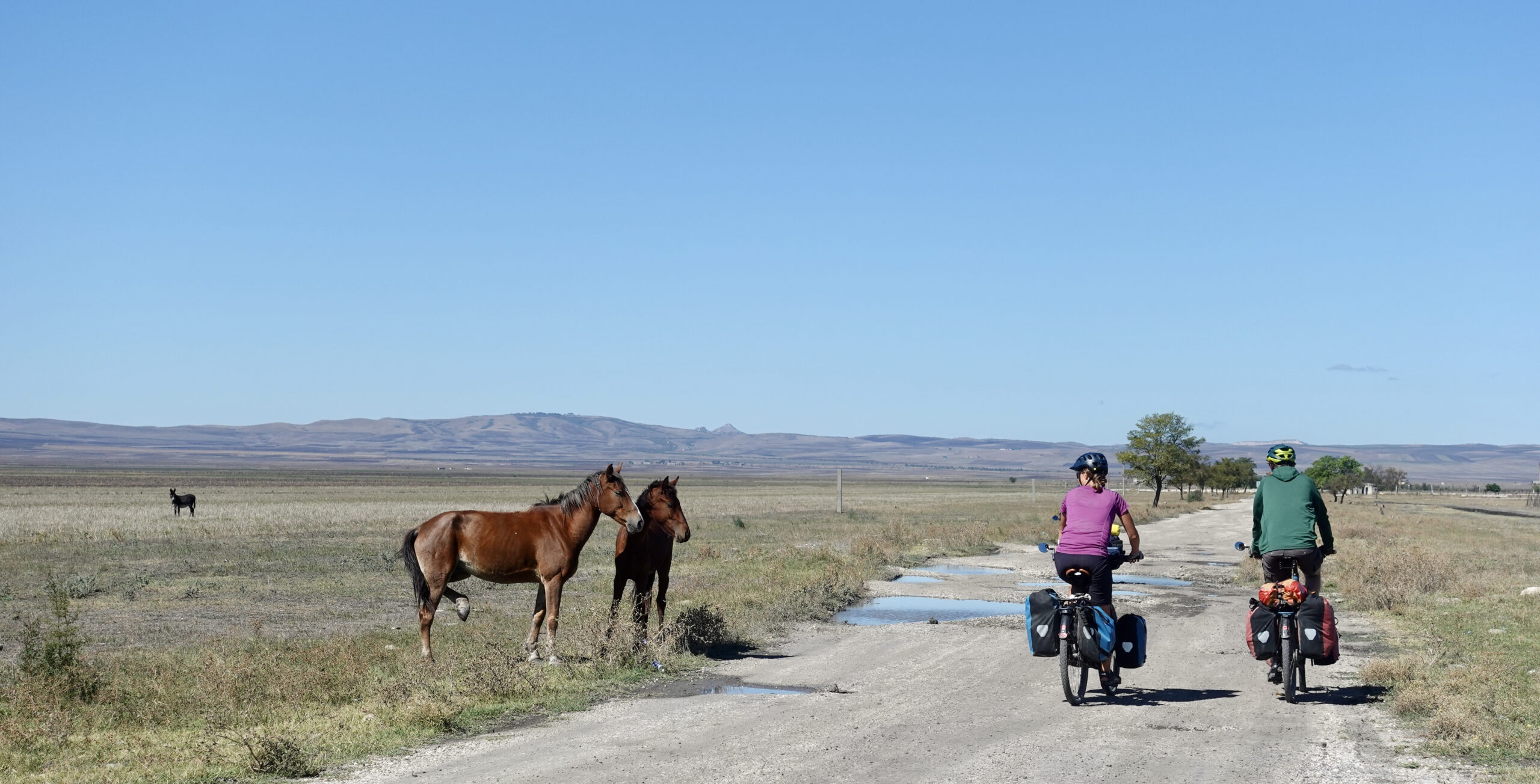
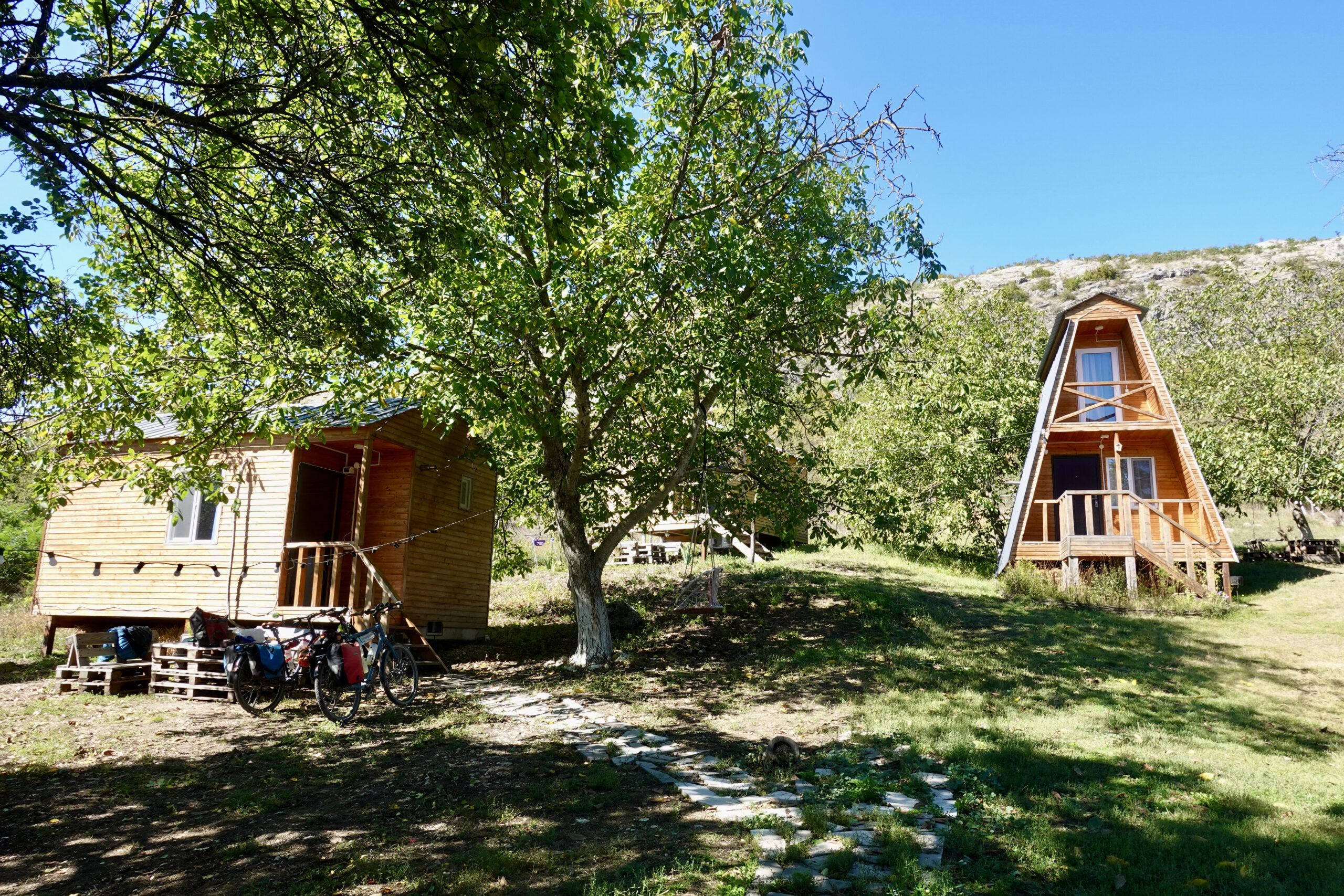
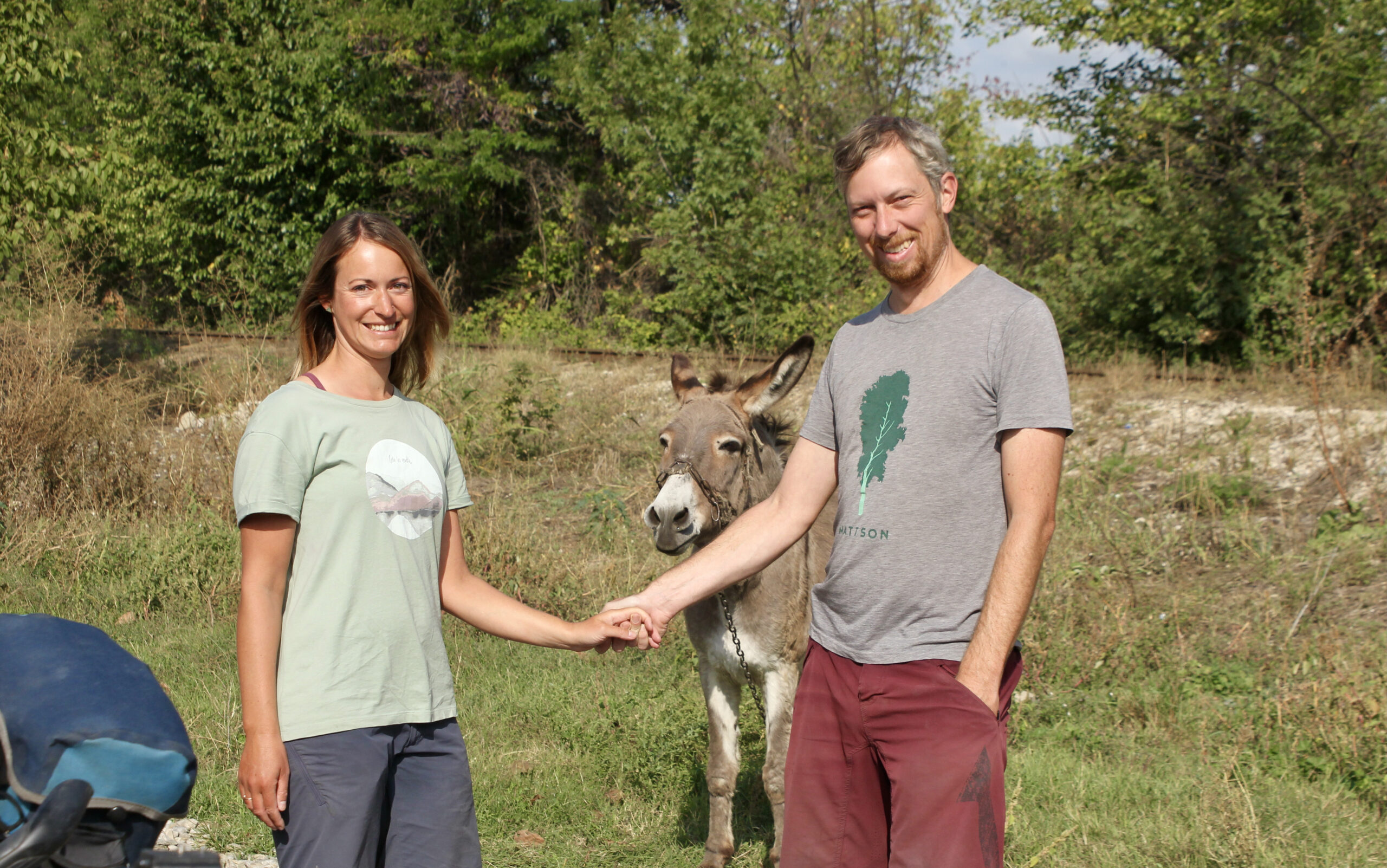
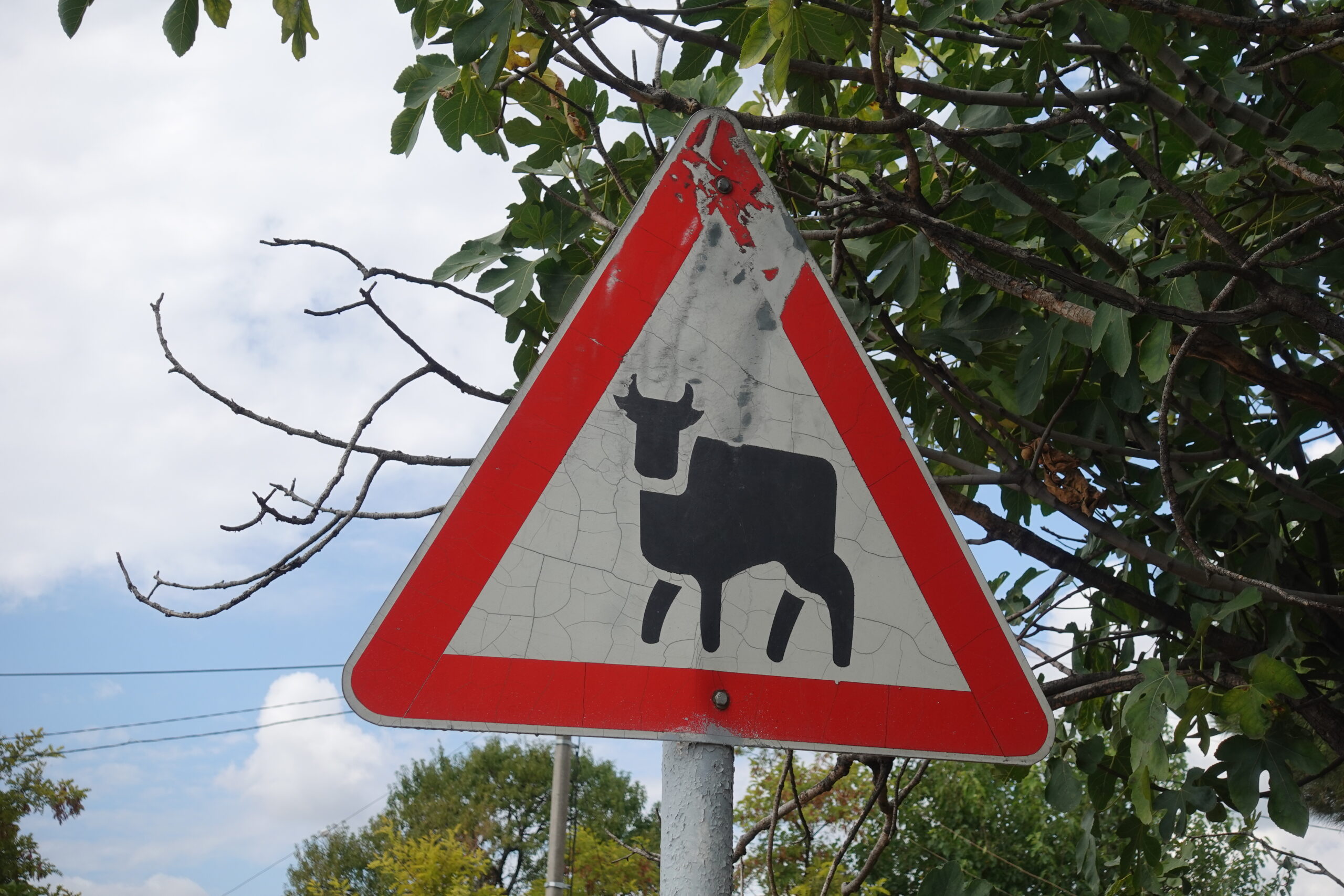
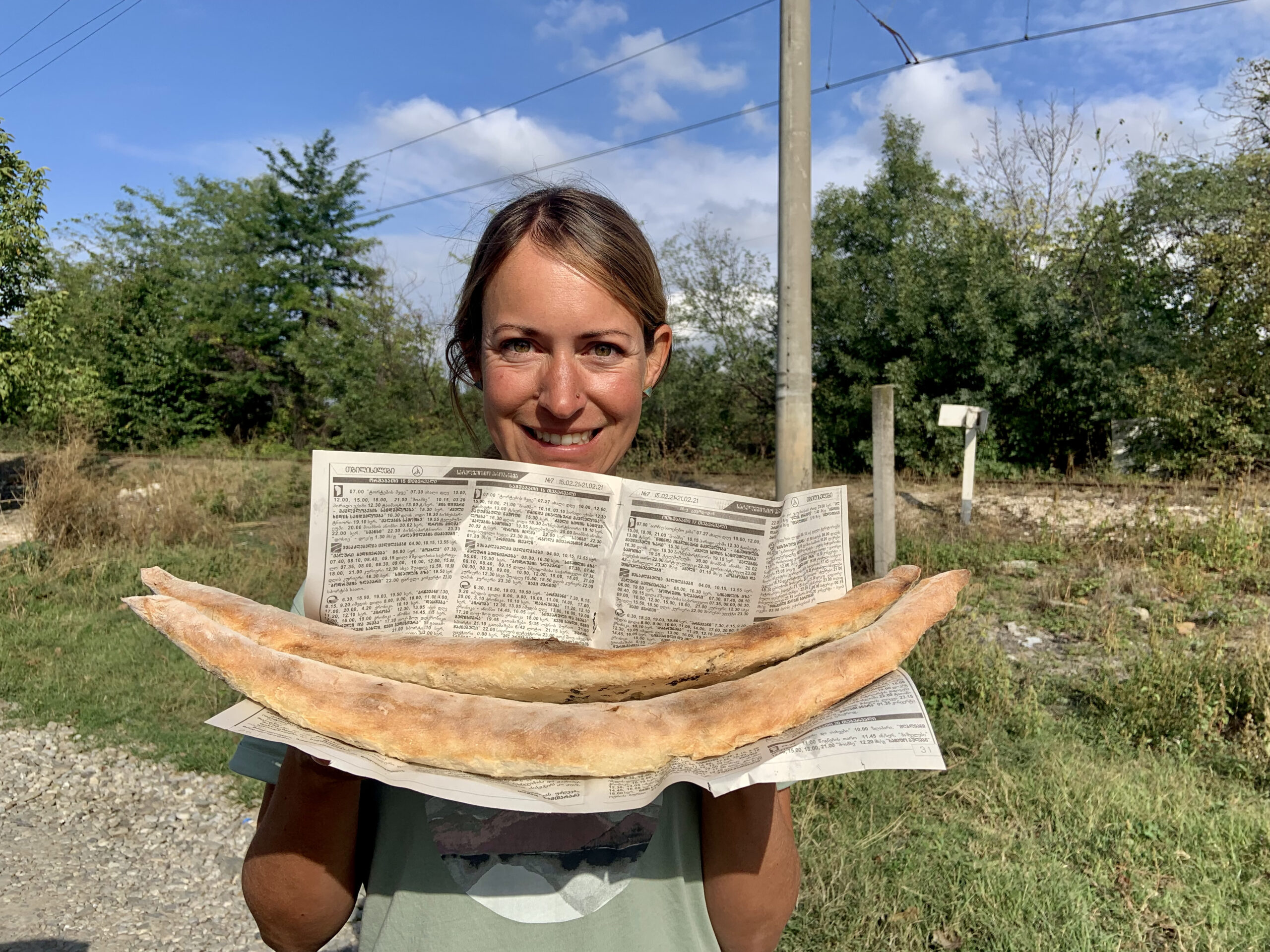
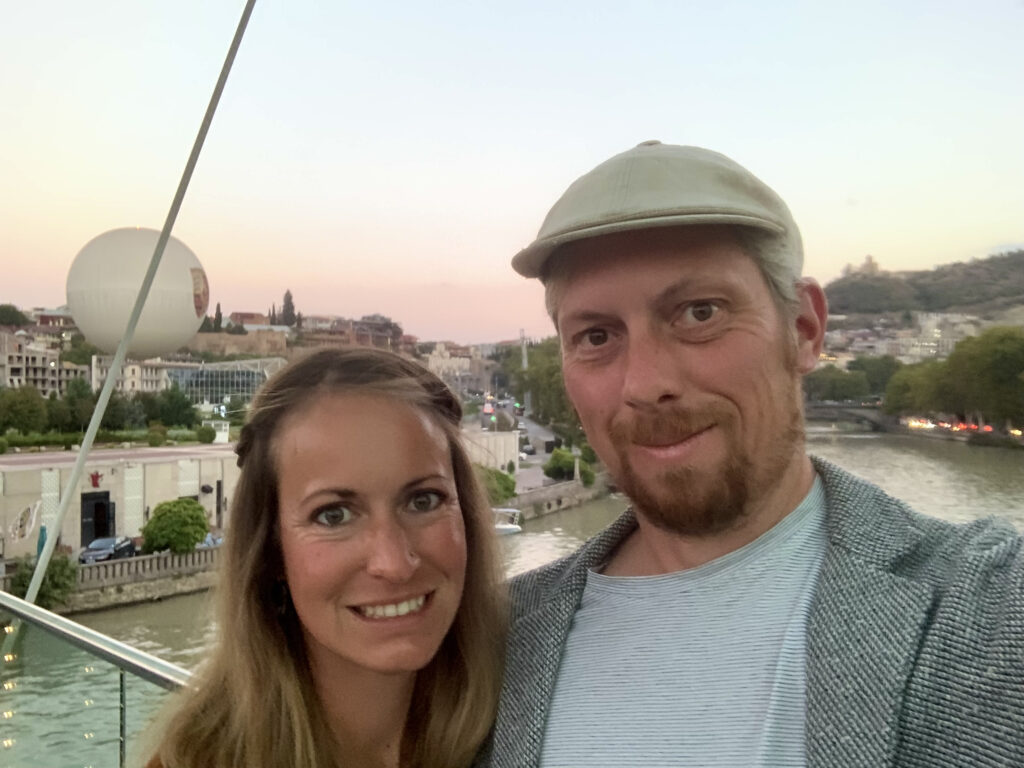
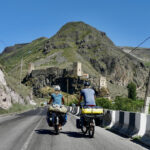
Leave a Reply